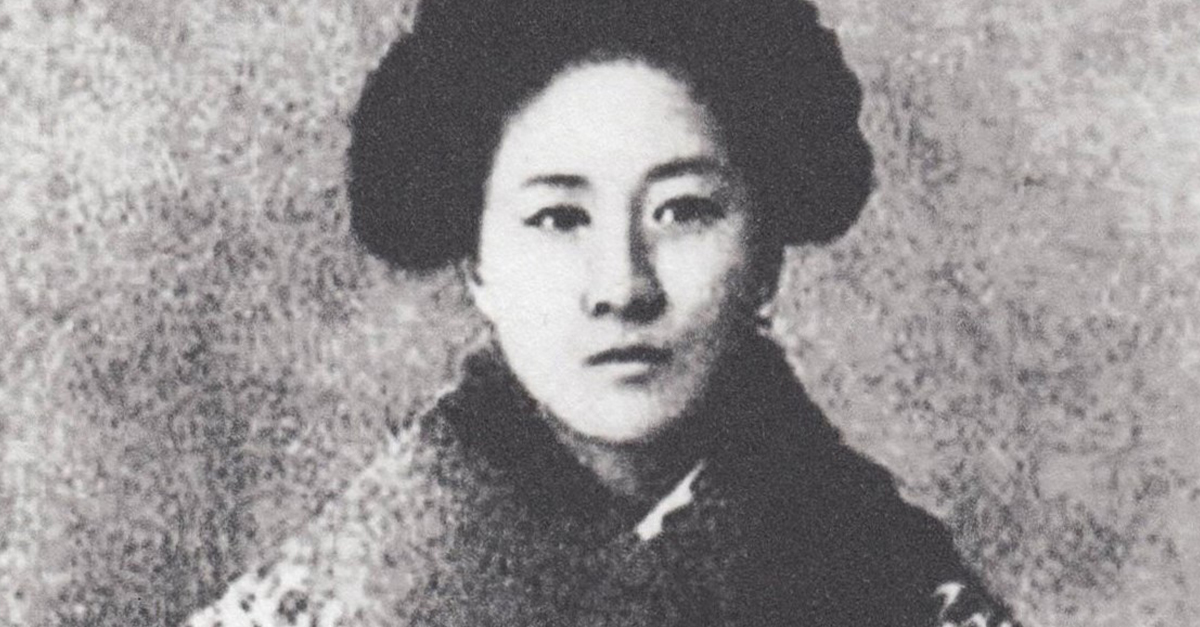Qui Jin made her mark on history for her passionate defiance of the world around her—but her end was utterly heartbreaking.
1. She’s A National Hero
Qiu Jin is a Chinese heroine today, with many gilded tributes to her bravery and her revolutionary defiance of norms in early 20th-century China. But underneath her revered image is a real person—one who suffered unthinkable ordeals, committed horrific betrayals, and made one final, fatal error. This is her true history.
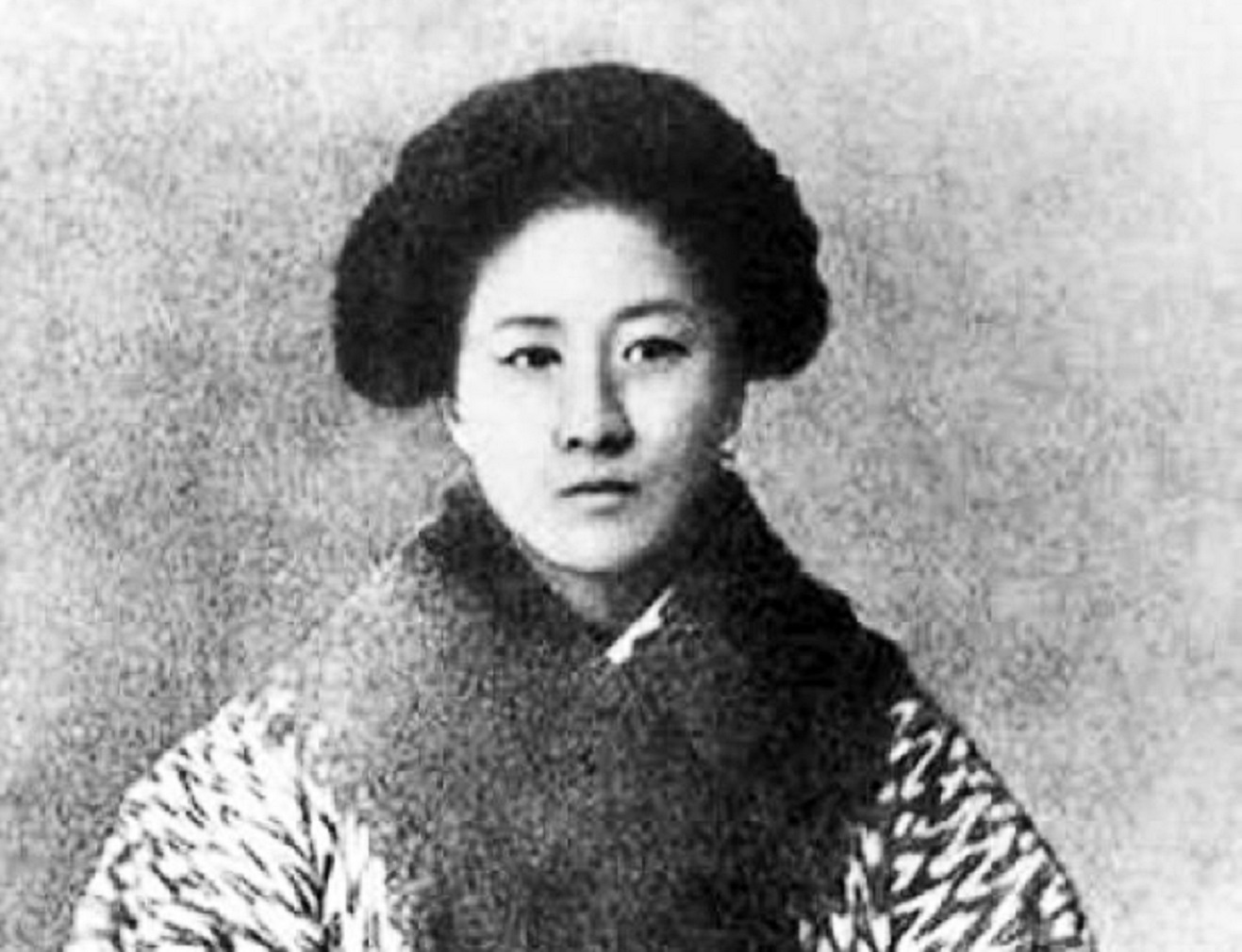 Unknown Author, Wikimedia Commons
Unknown Author, Wikimedia Commons
2. She Was Spoiled
You wouldn’t know from Qiu Jin’s beginnings what she would become, or the utter tragedy and drama she would experience. Her start was surprising for a revolutionary. Her family was one of the wealthiest in her city of Shaoxing, and when she came into the world in November of 1875, it seemed she was destined for a life of debutante balls.
Even so, an early, gruesome ritual changed her outlook forever.
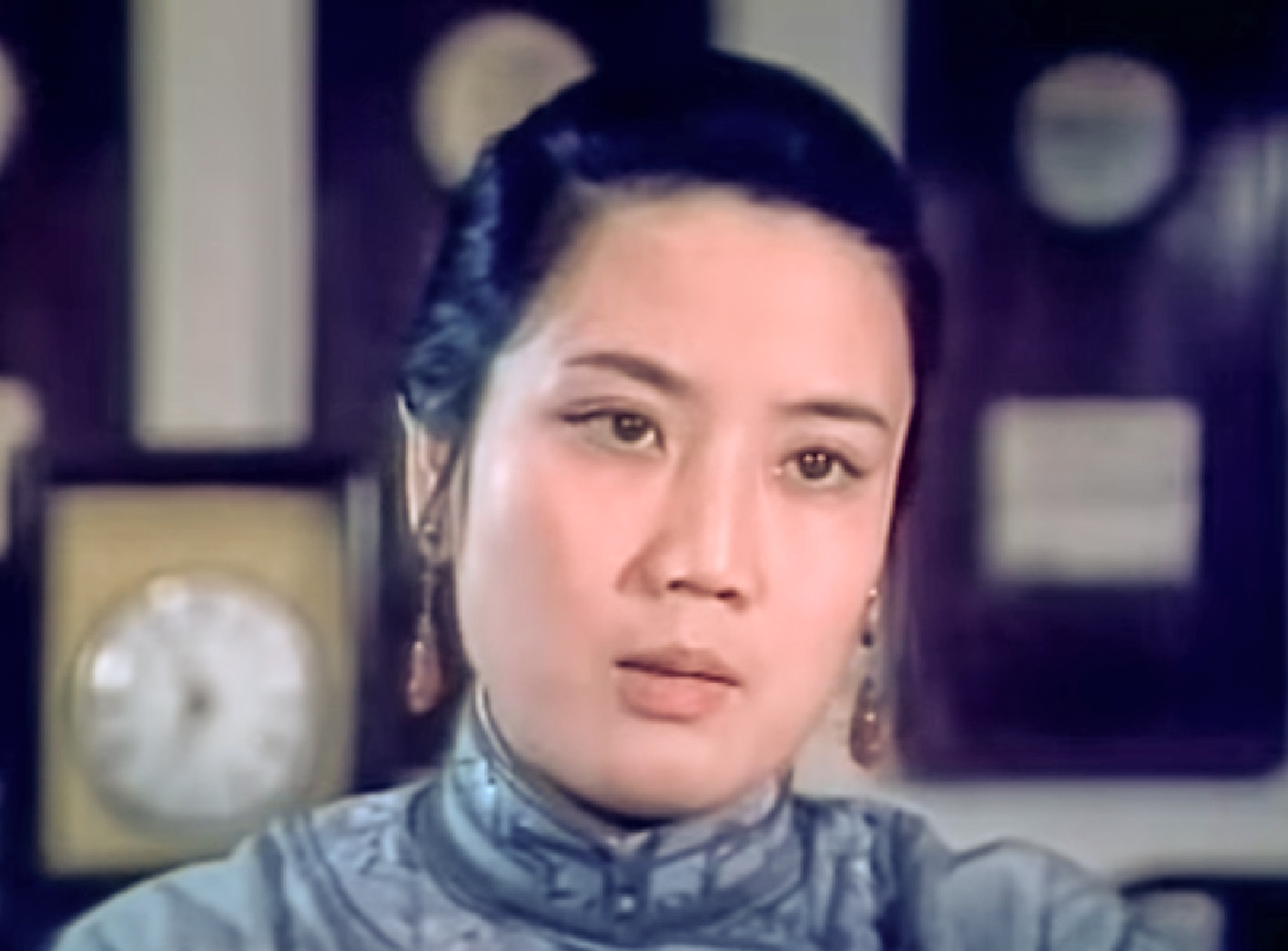 Shanghai Film Studios, Qiu Jin (1983)
Shanghai Film Studios, Qiu Jin (1983)
3. She Underwent A Brutal Ritual
When Qiu was very young, she had her feet bound—a common practice at the time, especially for girls from wealthy families. Back then, people considered bound feet, or “lotus feet,” a status symbol and mark of feminine beauty. Yet even though it was the norm, Qiu Jin would come to regret this alteration of her body in a big way.
Nonetheless, other parts of her childhood were much more unorthodox.
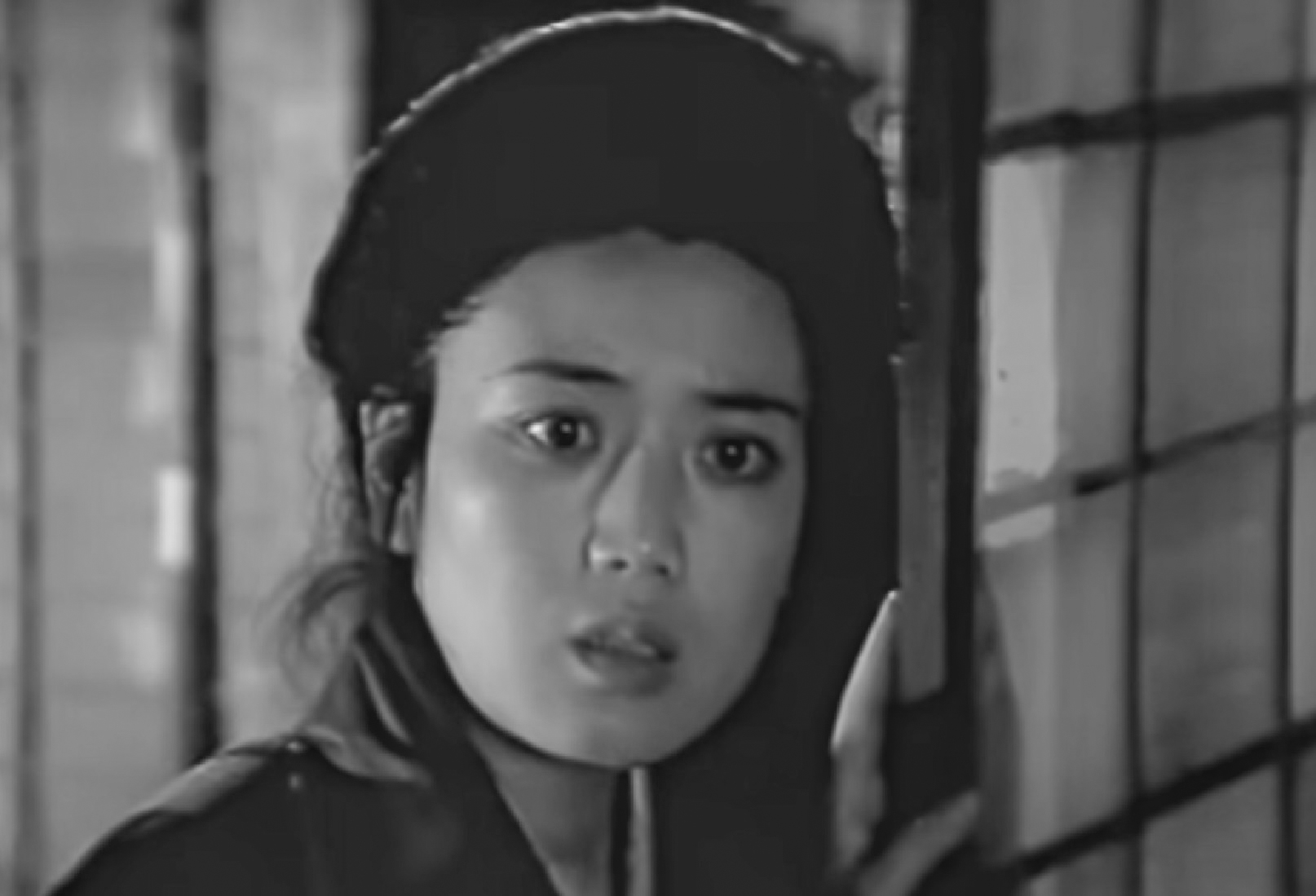 Shanghai Film Studios, Qiu Jin (1983)
Shanghai Film Studios, Qiu Jin (1983)
4. She Had Bold Ambitions
Qiu Jin’s relatives were all movers and shakers in the world of government and the literati. In other words, her parents didn’t just have money, they also had culture. Perhaps soaking this up, Qiu Jin began writing poetry when she was still just a child, and harbored dreams of becoming a successful writer. Only, she had another, more violent side.
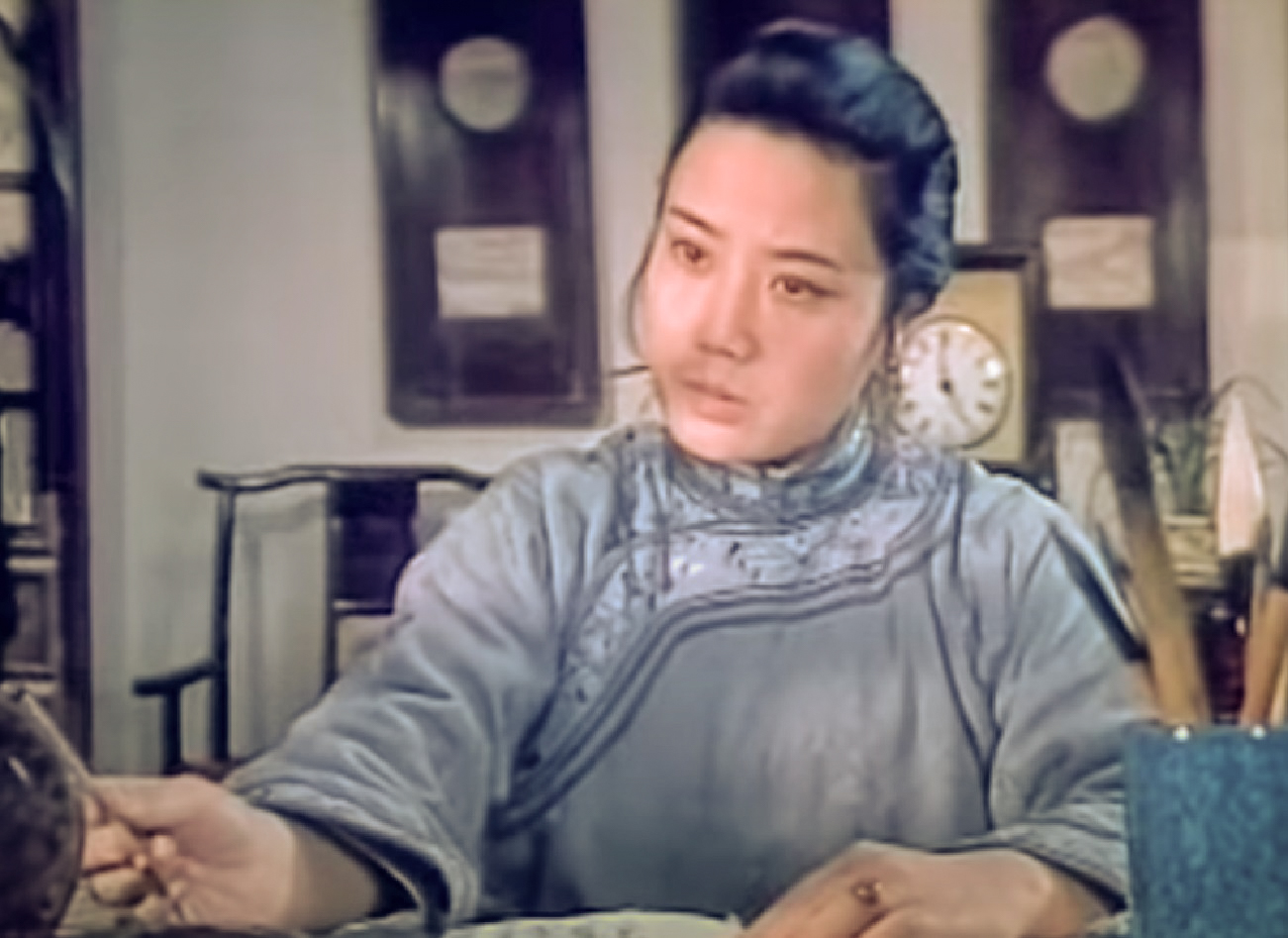 Shanghai Film Studios, Qiu Jin (1983)
Shanghai Film Studios, Qiu Jin (1983)
5. She Had “Strange” Desires
Aside from her intellectual qualities, Qiu Jin also surprised her parents with a startling request. She also wanted to learn skills boys traditionally took up, such as horseback riding and wielding a sword. She even demanded that she be allowed to drink wine at events, another uber masculine thing.
Her parents, who doted on Qiu, caved and let her. But their future plans for her weren’t so kind.
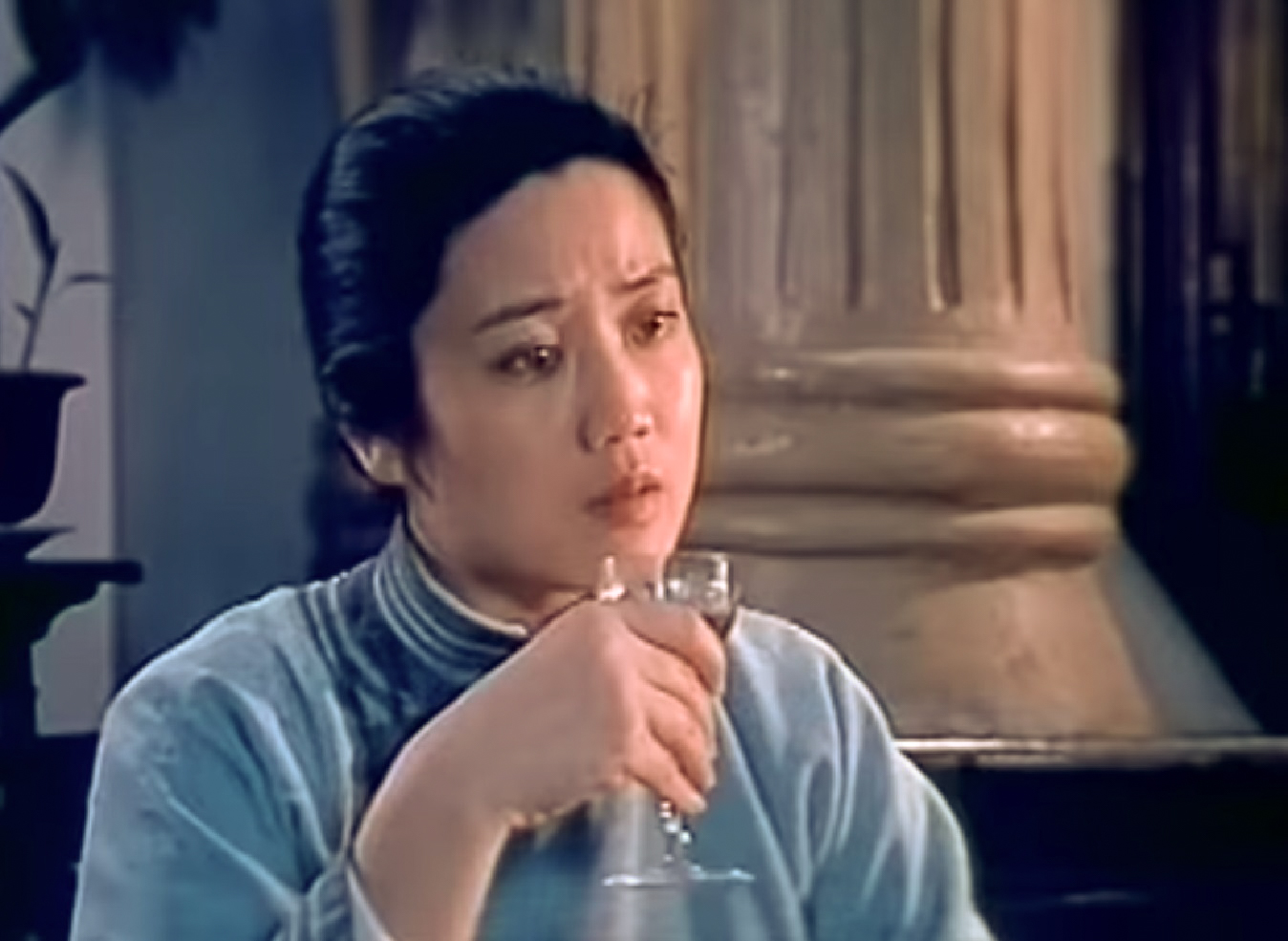 Shanghai Film Studios, Qiu Jin (1983)
Shanghai Film Studios, Qiu Jin (1983)
6. She Was An Independent Spirit
For long time—at least long by the day’s standards—Qiu Jin remained single and unmarried. Until she was 21, she enjoyed a long stretch of independence where she could find herself, develop her own interests, and hone her writing. For her parents, this ended up being a fatal mistake: When they did suggest a suitor for their headstrong daughter, the results were that much worse.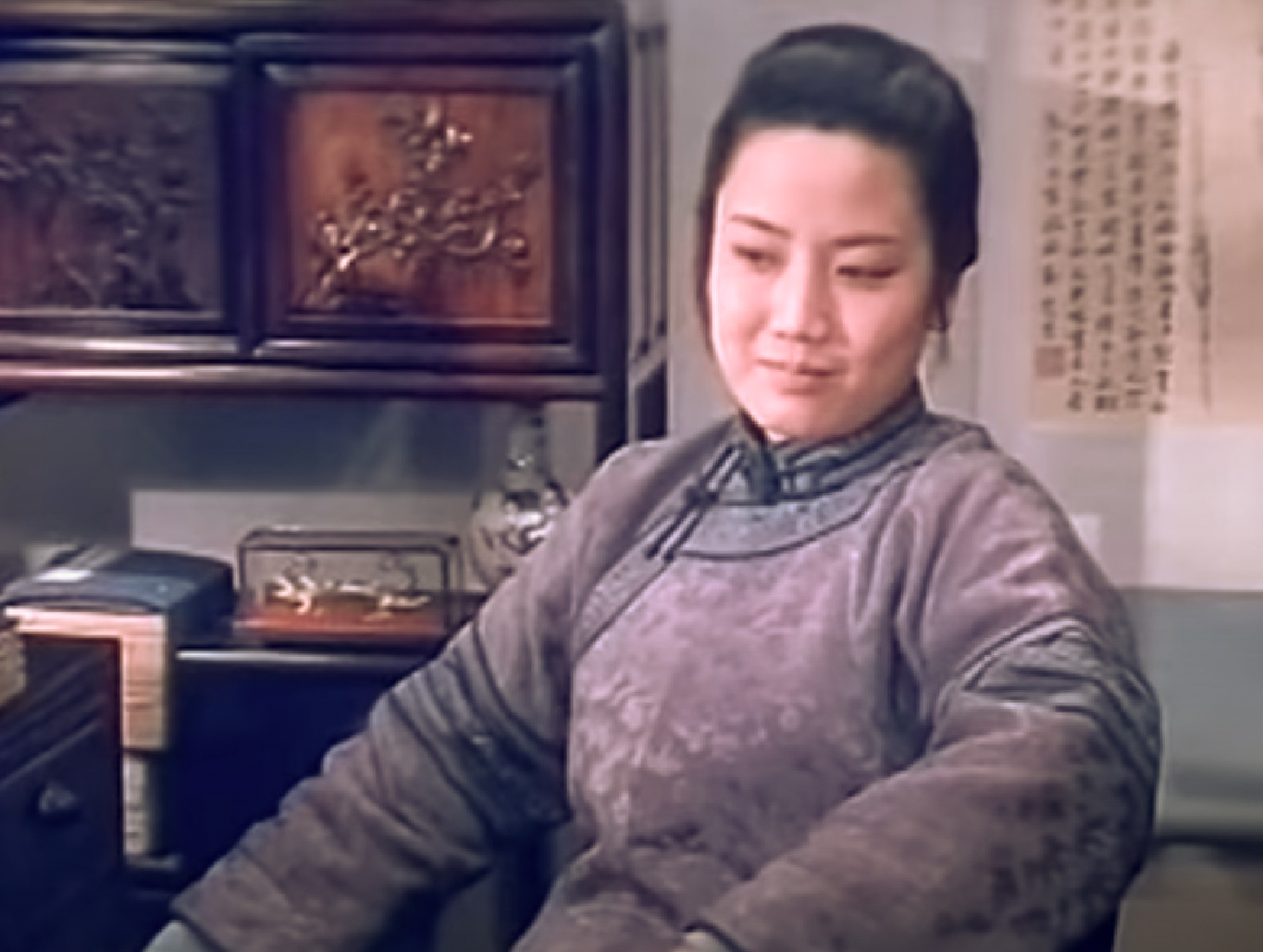 Shanghai Film Studios, Qiu Jin (1983)
Shanghai Film Studios, Qiu Jin (1983)
7. Her Parents Pushed Her To Marry
In 1896, Qiu Jin’s father brought a man named Wang Tingchun to her attention. As the youngest son of a wealthy merchant from another province, he was everything society expected of Qiu as she grew into a woman. There was just one problem.
By then, Qiu wanted nothing to do with marriage, and likely tried to get out of the union. Tragically for everyone involved, she didn’t get her wish.
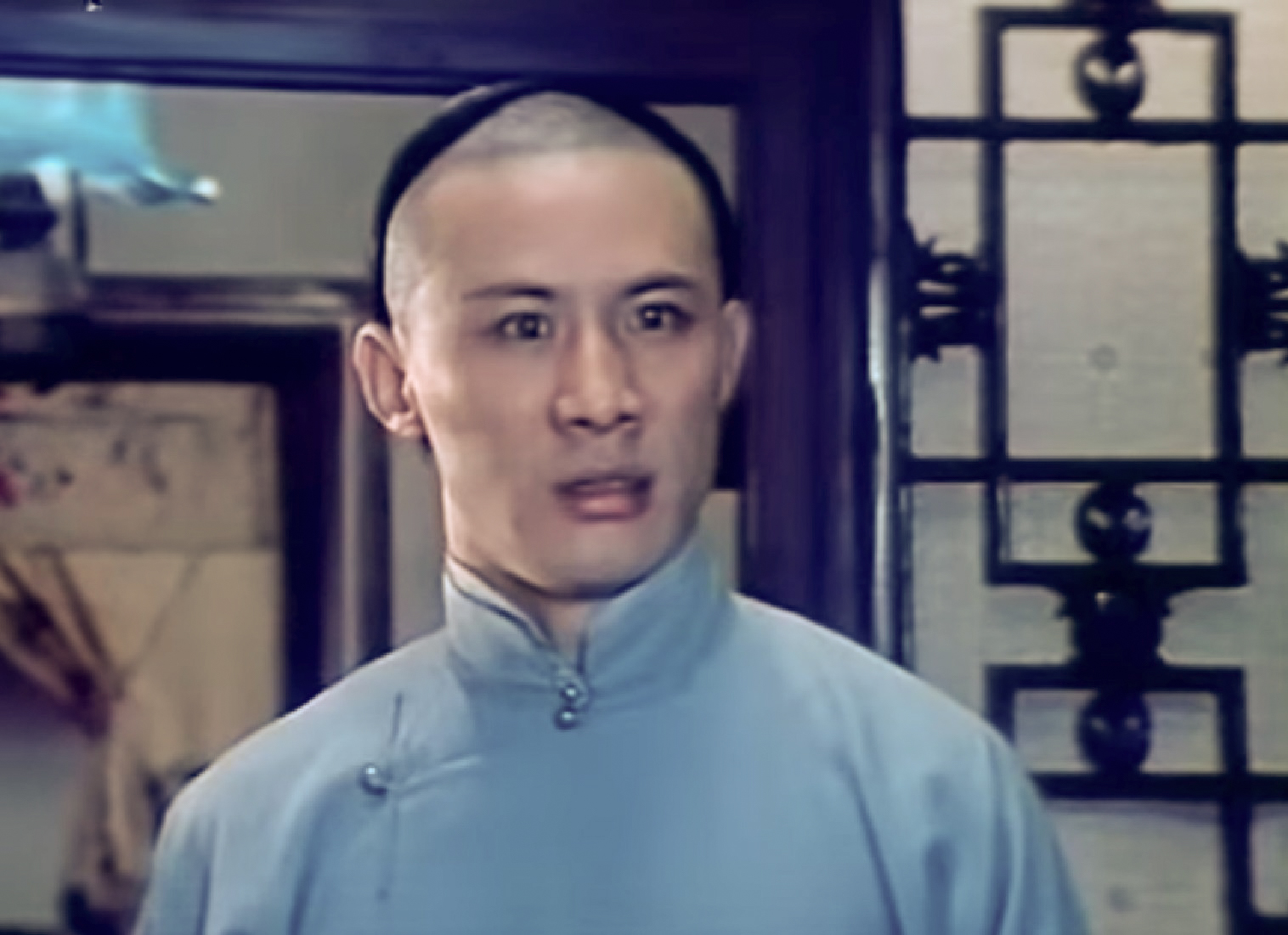 Shanghai Film Studios, Qiu Jin (1983)
Shanghai Film Studios, Qiu Jin (1983)
8. She Was A Tragic Bride
Soon after Qiu Jin’s family began pressing her to marry, she made the worst mistake of her young adult life. She caved to her father and mother’s demands, settling into a union with Wang Tingchun despite her misgivings. In someone else’s story, this could have turned into a surprising happily ever after. But as Qiu got to know her new husband, her heart sunk.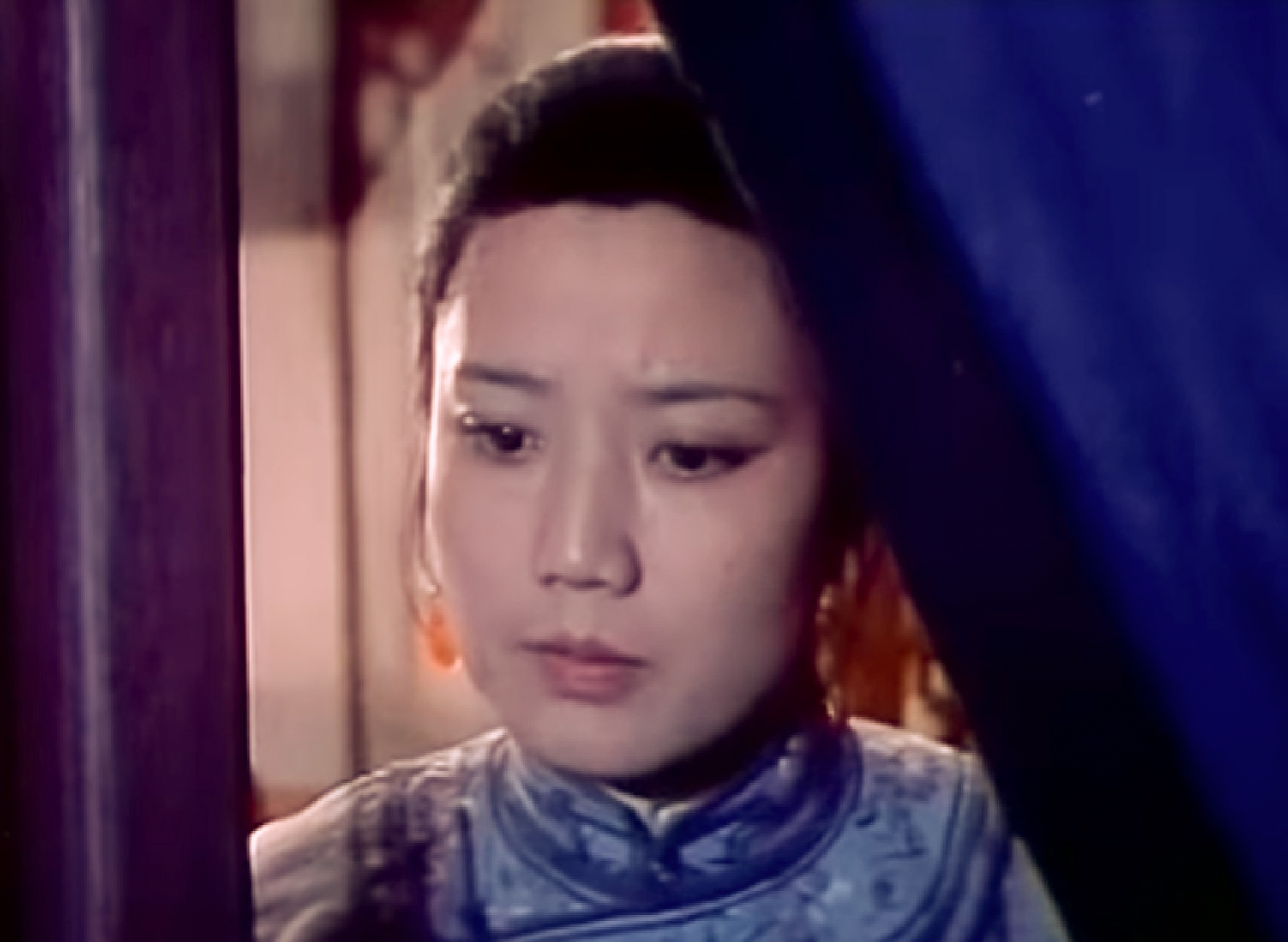 Shanghai Film Studios, Qiu Jin (1983)
Shanghai Film Studios, Qiu Jin (1983)
9. Her Marriage Was Miserable
To put it mildly, Qiu Jin did not strike out and get a good egg when she married Wang Tingchun. Traditional to the extreme, her spouse barely paid attention to her—she was a woman after all—and instead looked only after himself, expecting Qiu to do the same. Within a short time, the consequences on Qiu were devastating.
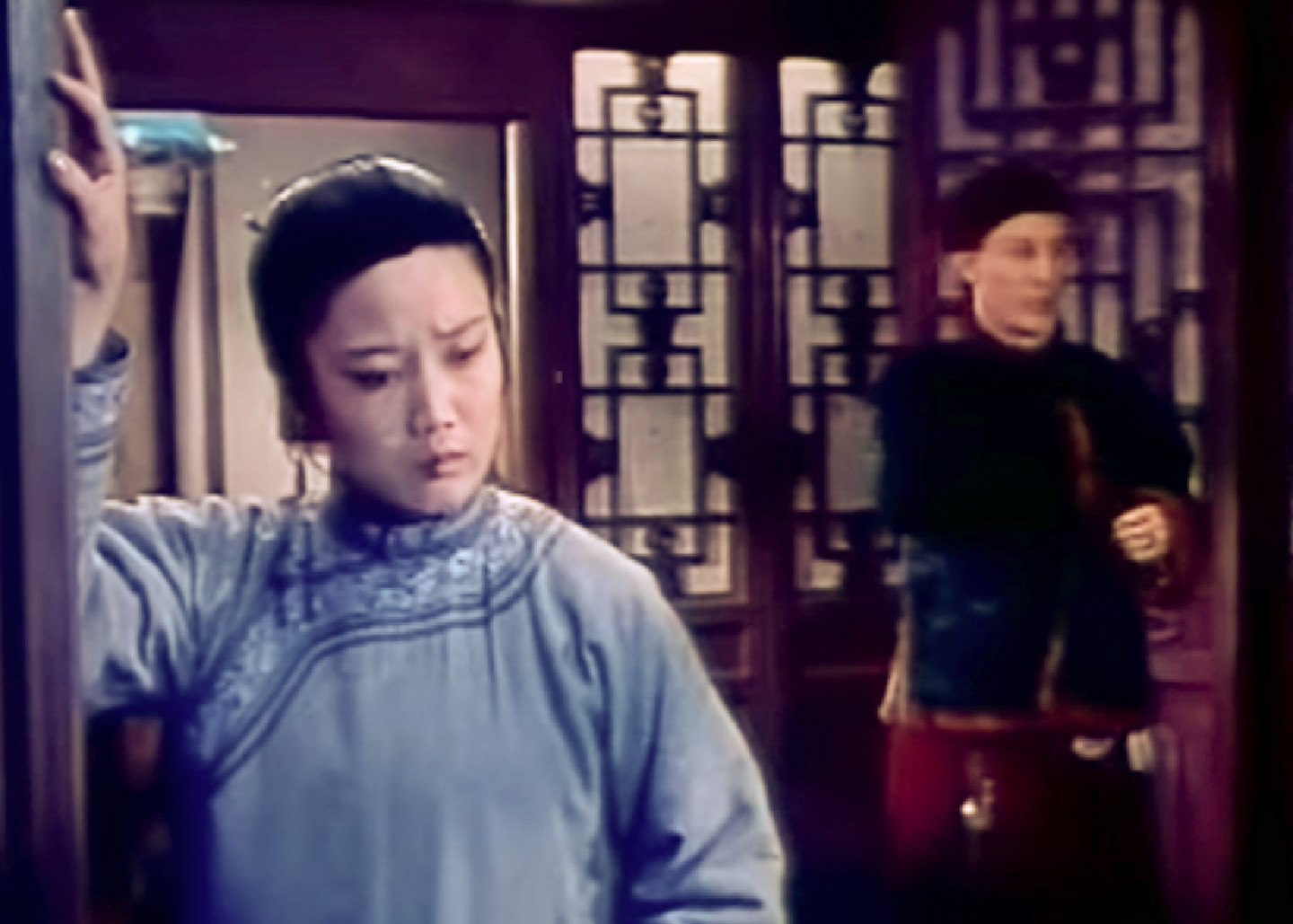 Shanghai Film Studios, Qiu Jin (1983)
Shanghai Film Studios, Qiu Jin (1983)

History's most fascinating stories and darkest secrets, delivered to your inbox daily.
10. Her Husband Repelled Her
Qiu’s marriage became very unhappy, very quickly. She soon detested even being around Wang Tingchun, complaining that, he “treats me as less than nothing” and that his “behavior is worse than an animal’s”. She added that he even physically disgusted her, saying “When I think of him my hair bristles with anger, it’s absolutely unbearable”.
Her horrible marriage had deeper, more invisible effects.
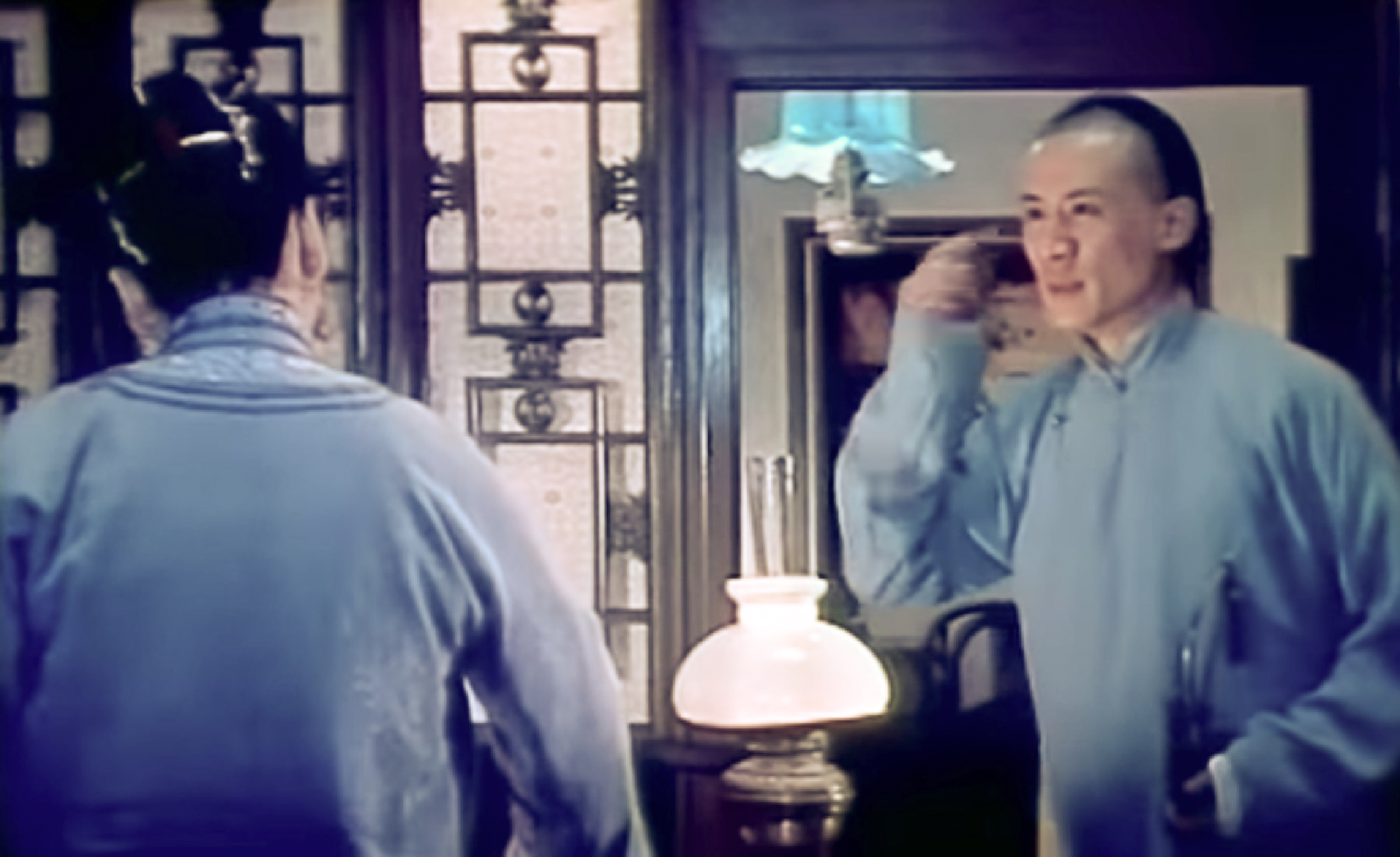 Shanghai Film Studios, Qiu Jin (1983)
Shanghai Film Studios, Qiu Jin (1983)
11. She Lost Herself
As Qiu Jin subjected herself to this treatment, she underwent a disturbing transformation. She felt her self-confidence slowly leach away from her, and found herself giving up her previous dreams of becoming a famous poet. Lonely and frustrated, she had little to comfort her…and her next big life event certainly didn’t help.
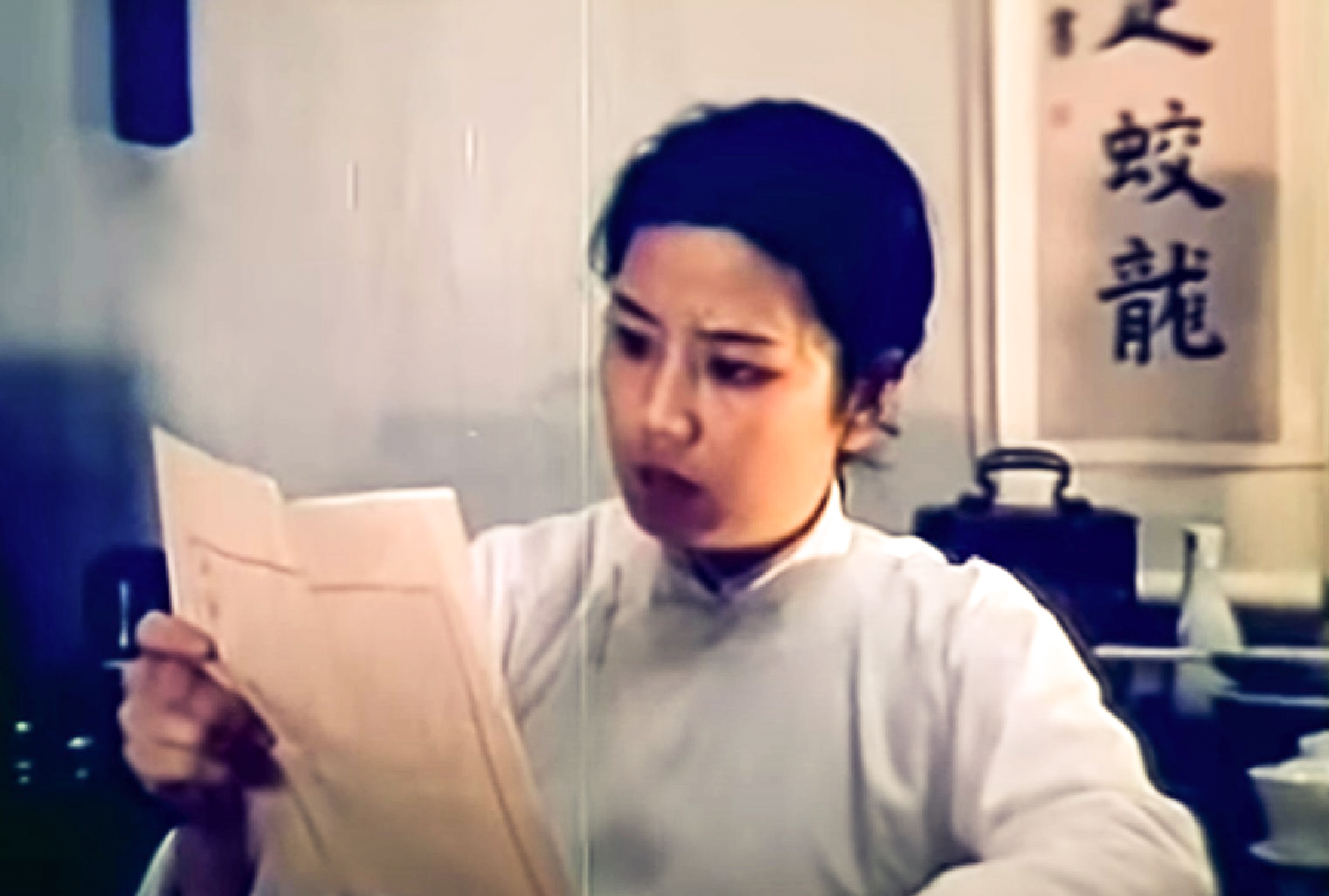 Shanghai Film Studios, Qiu Jin (1983)
Shanghai Film Studios, Qiu Jin (1983)
12. Motherhood Didn’t Save Her
Eventually, Qiu Jin did her “duty” and bore two children with Wang Tingchun, Wang Yuande and Wang Guifen. Yet motherhood didn’t magically fix her life and give her fulfilment. She was now more restless than before, and sure her destiny wasn’t only in child-rearing. Luckily, there was one glimmering hope.
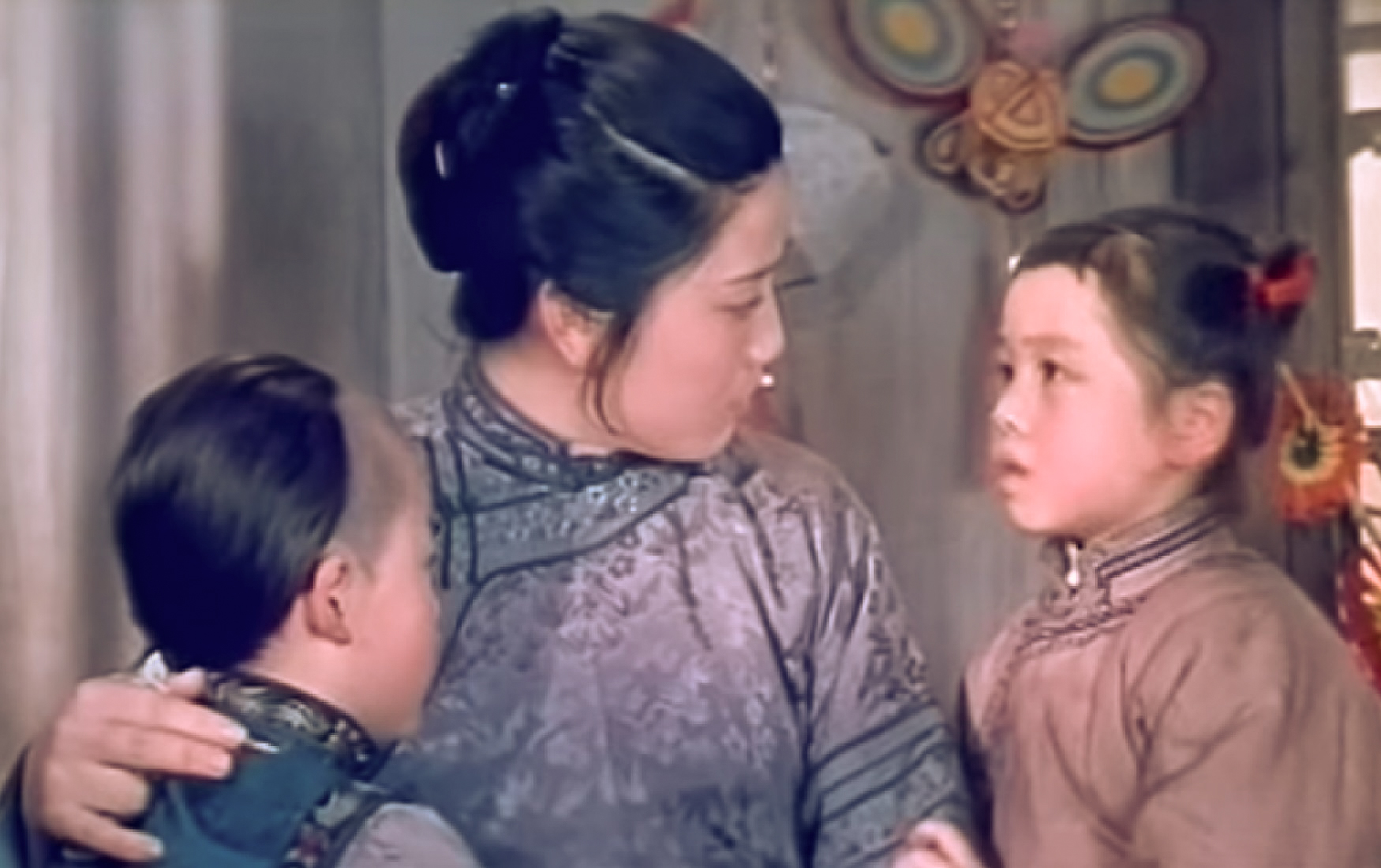 Shanghai Film Studios, Qiu Jin (1983)
Shanghai Film Studios, Qiu Jin (1983)
13. One Move Redeemed Her
Before Qiu Jin could quite resign herself to a life of hopeless dullness, she and her husband got the opportunity to move from their provincial life and into the bustling Beijing. With their children in tow, they arrived in the Imperial capital—and Qiu Jin’s whole life lit up. The city was cosmopolitan, vibrant, and full of new ideas.
It was just what Qiu needed, but it also set her on the beginnings of a dangerous path.
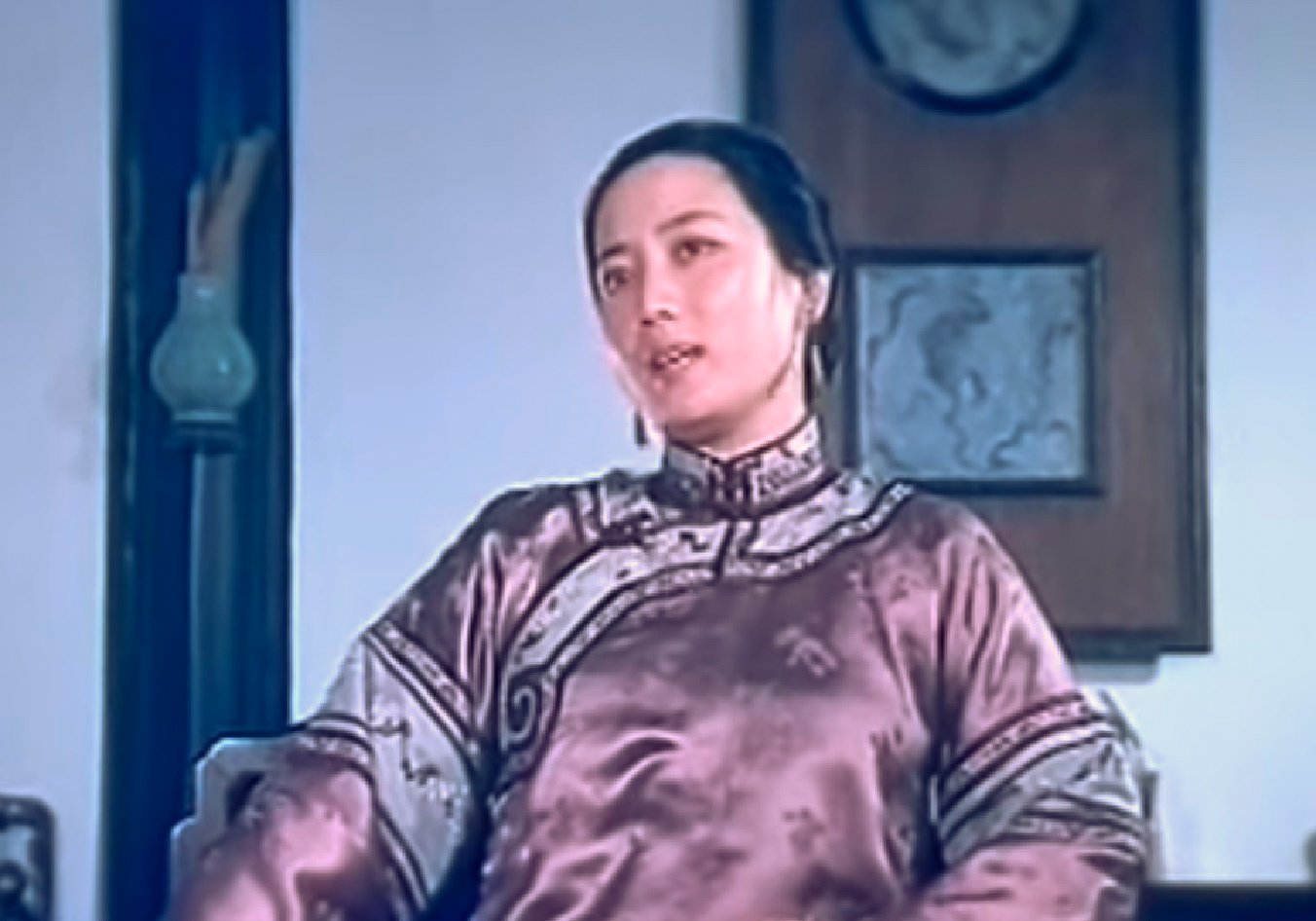 Shanghai Film Studios, Qiu Jin (1983)
Shanghai Film Studios, Qiu Jin (1983)
14. She Became A Bad Girl
While in Beijing, Qiu Jin took up shocking habits. Well, shocking for the time anyway. She began to make women friends who, like her, were smart, ambitious, and valued their freedom in every way. With them, Qiu took up drinking wine regularly, discussing China’s politics, and generally not acting like a dutiful wife. But that wasn’t all.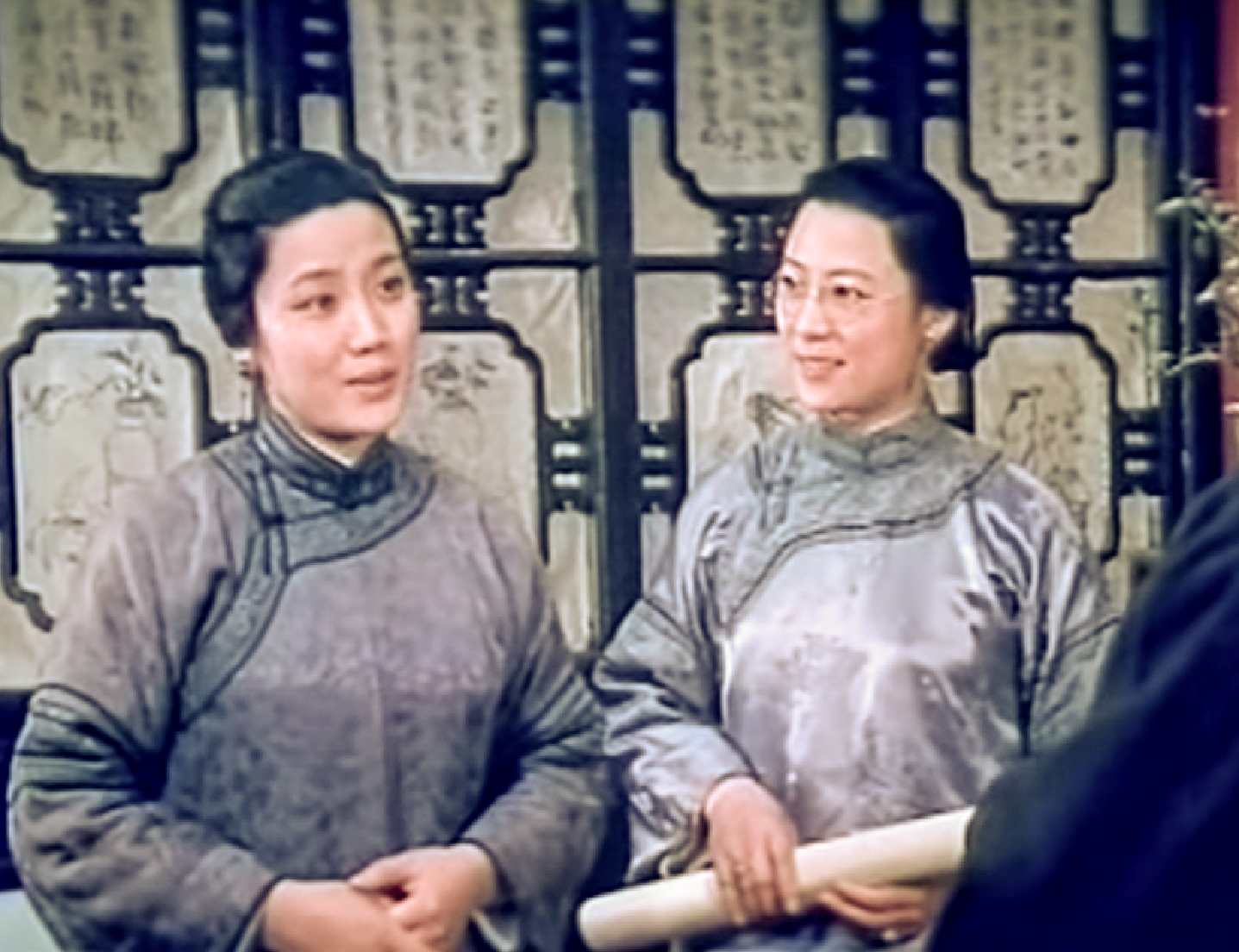 Shanghai Film Studios, Qiu Jin (1983)
Shanghai Film Studios, Qiu Jin (1983)
15. She Cross-Dressed
When it came to Qiu’s new way of life, some tipples of a drink were the least of it. Open to a whole host of other lifestyles, she began experimenting with cross-dressing and letting some of that masculine, confident energy into her life again once more. To go along with this, she also took up swordplay more seriously now. Oh, and there was one final rebellion.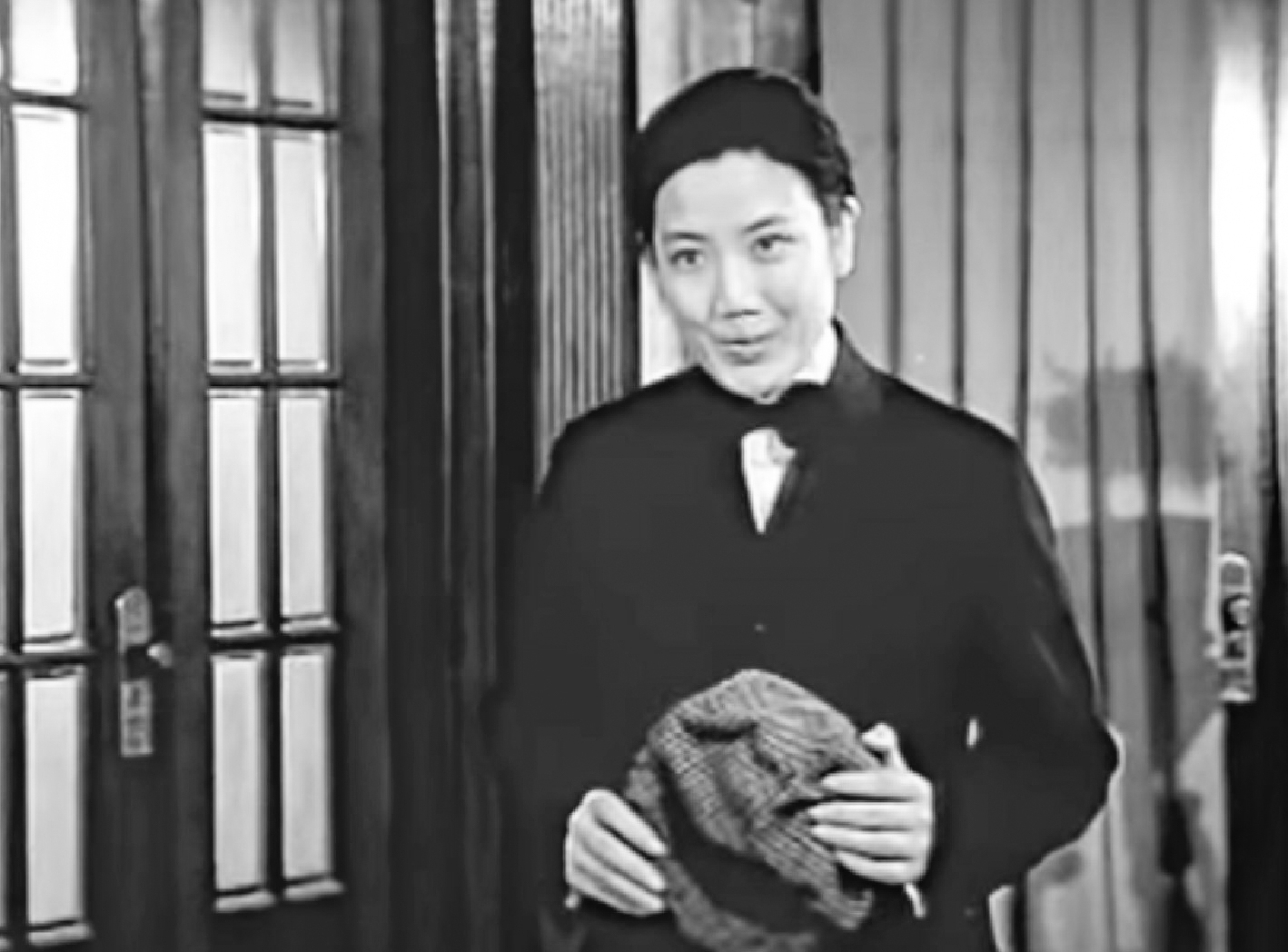 Shanghai Film Studios, Qiu Jin (1983)
Shanghai Film Studios, Qiu Jin (1983)
16. She Performed The Ultimate Act Of Defiance
In case anyone had any illusions about the new Qiu, she made sure they knew exactly who she was. In a supreme act of defiance, the aristocratic beauty also unbound her feet, shucking off all the feminine and constrained associations that went with it. She had emerged from her cocoon, and she was ready to take on the world.
Only, not everything was picture perfect.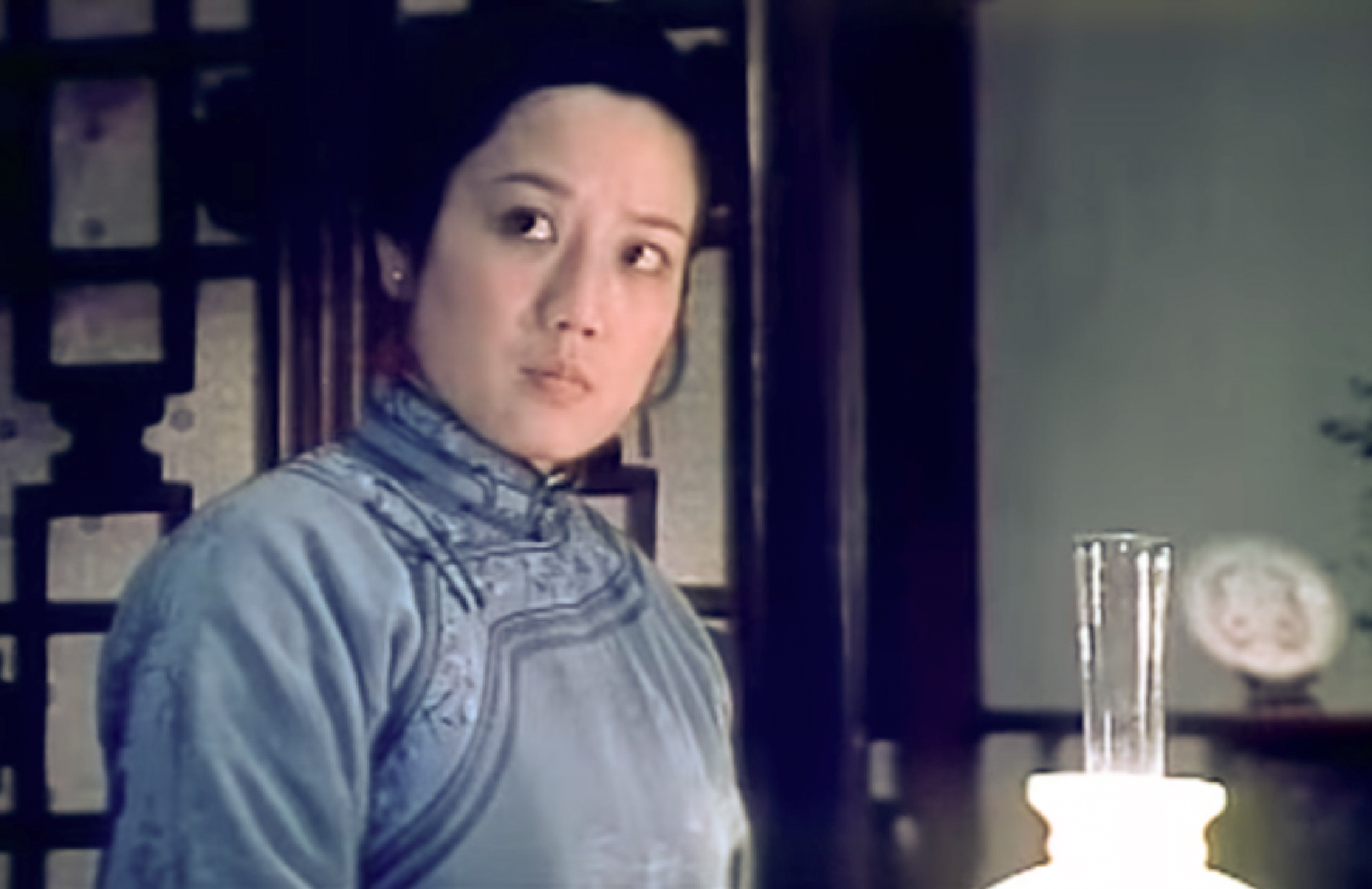 Shanghai Film Studios, Qiu Jin (1983)
Shanghai Film Studios, Qiu Jin (1983)
17. Her Husband Pushed Her To The Edge
For all that Qiu had made exciting new friends, she still had the same old problem: Her husband. While she had blossomed in Beijing, the enormous city had seemingly done nothing to change him, and she grew more and more frustrated with his utter lack of interest in learning, poetry, or anything beyond his immediate needs.
All this led her to a scandalous decision.
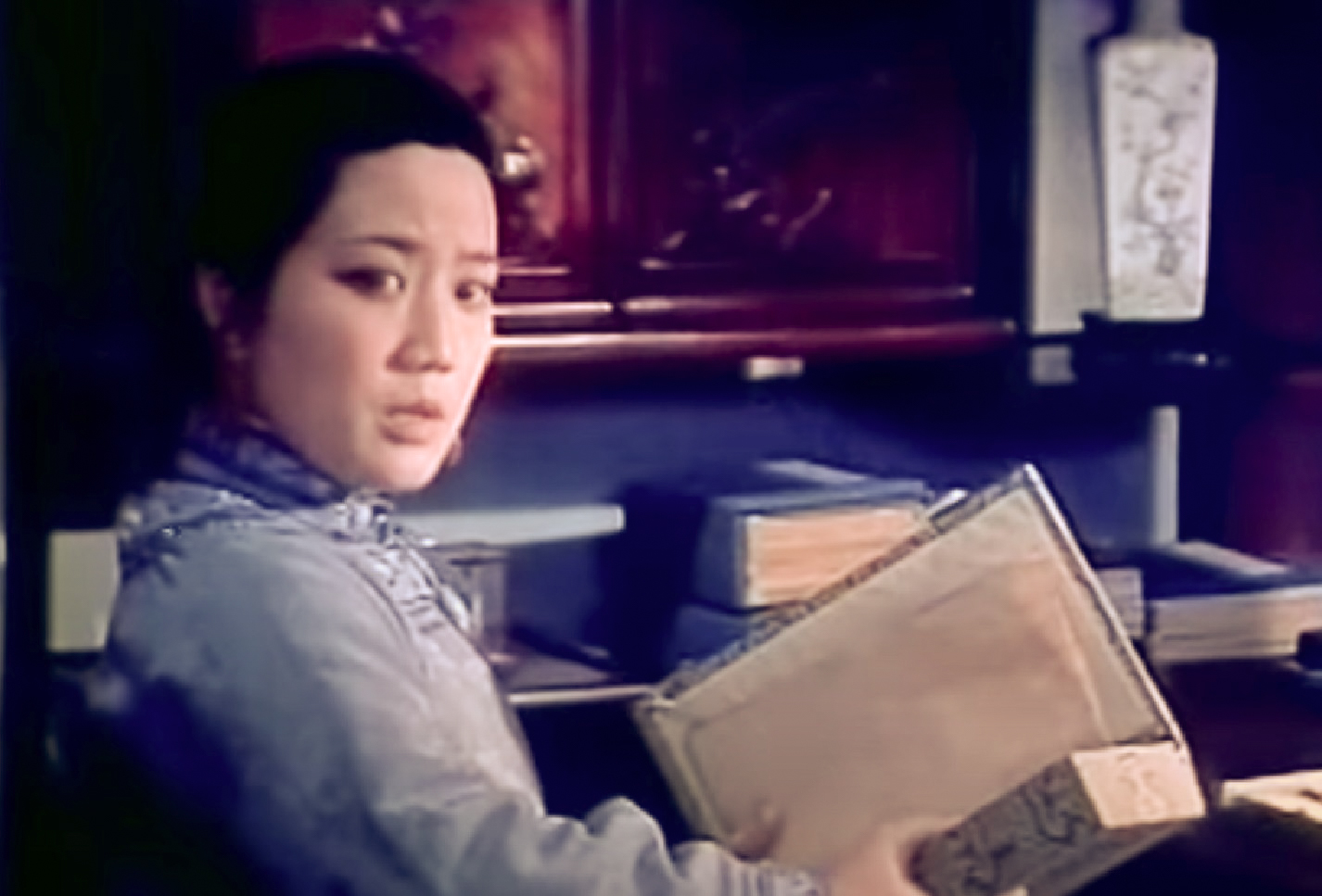 Shanghai Film Studios, Qiu Jin (1983)
Shanghai Film Studios, Qiu Jin (1983)
18. She Volunteered For A Dangerous Mission
Around this time, China was undergoing a transformation too. After losing the Sino-Japanese war, they began to prioritize learning from their more powerful enemy and bringing back that knowledge to China. This meant sending over aristocrats to study in the rival nation. When Qiu heard this, she jumped at the chance, and gave up everything to do it.
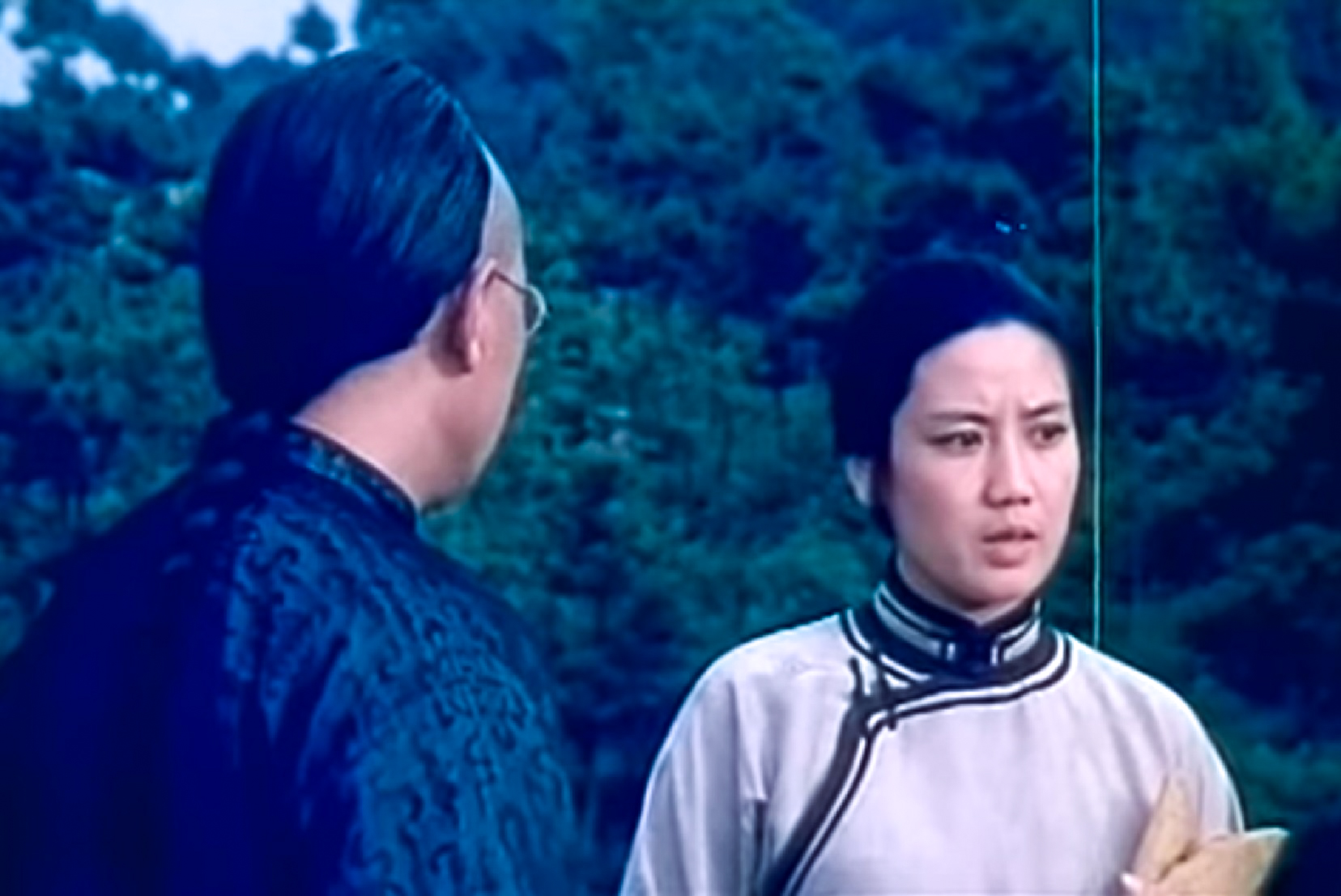 Shanghai Film Studios, Qiu Jin (1983)
Shanghai Film Studios, Qiu Jin (1983)
19. She Abandoned Her Children
In the early 1900s, Qiu boarded a ship headed to Japan, on an adventure at long last. But this exploit came with a brutal price. In so doing, Qiu didn’t just leave behind her husband—who she was probably happy to put in the rear-view mirror anyway—but also her two extremely young children. And she was anything but flippant about this abandonment.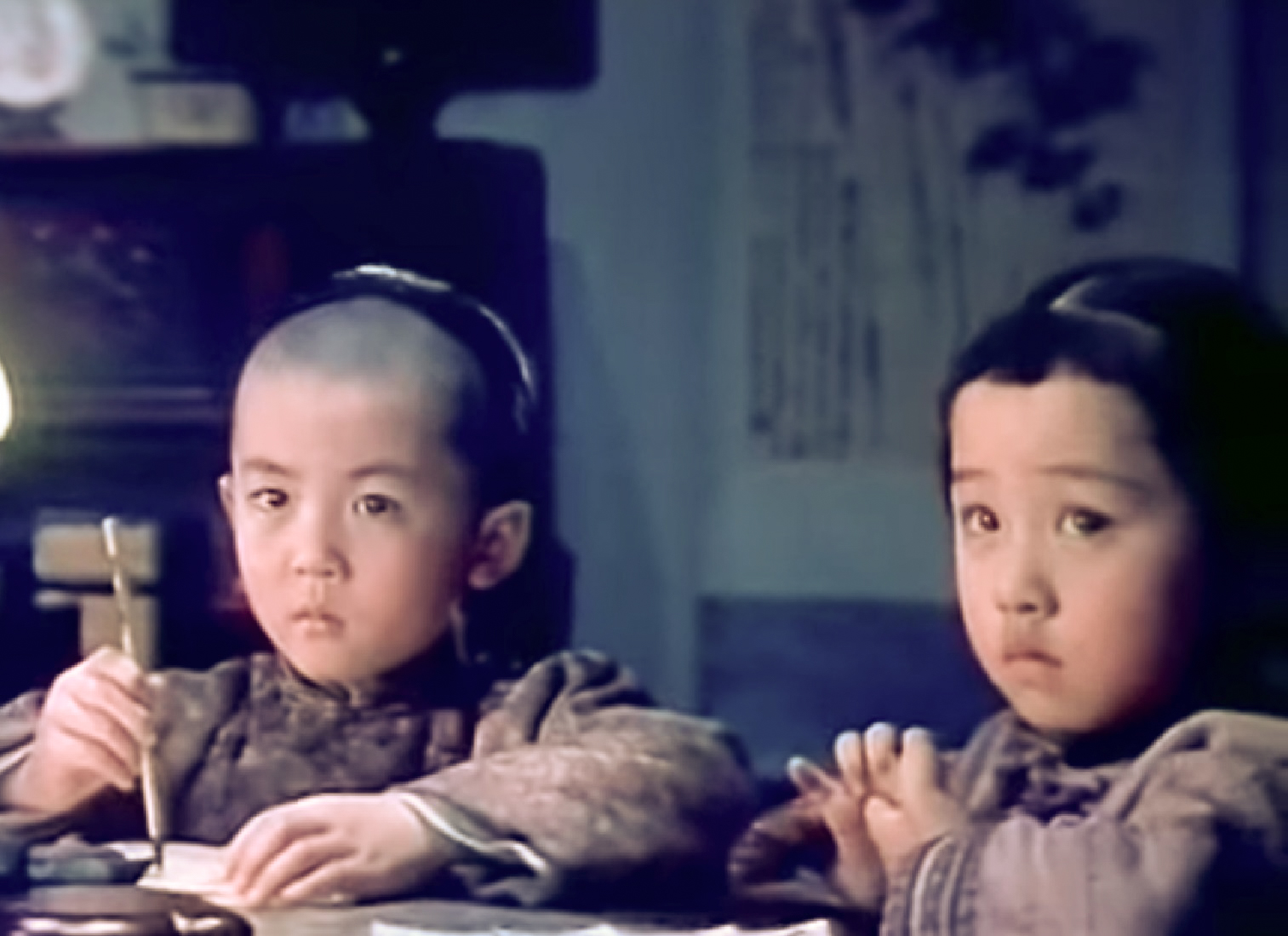 Shanghai Film Studios, Qiu Jin (1983)
Shanghai Film Studios, Qiu Jin (1983)
20. She Regretted Her Actions
It might be easy or more comfortable to think of Qiu Jin here as completely unburdened, but she was far from it. She wrote a poem about her experience leaving everything behind, and although she expresses her hopes for the future, she also notes her handkerchief is “half stained with blood, and half with tears”.
Even more tragically, these would be prophetic words for her inhuman end.
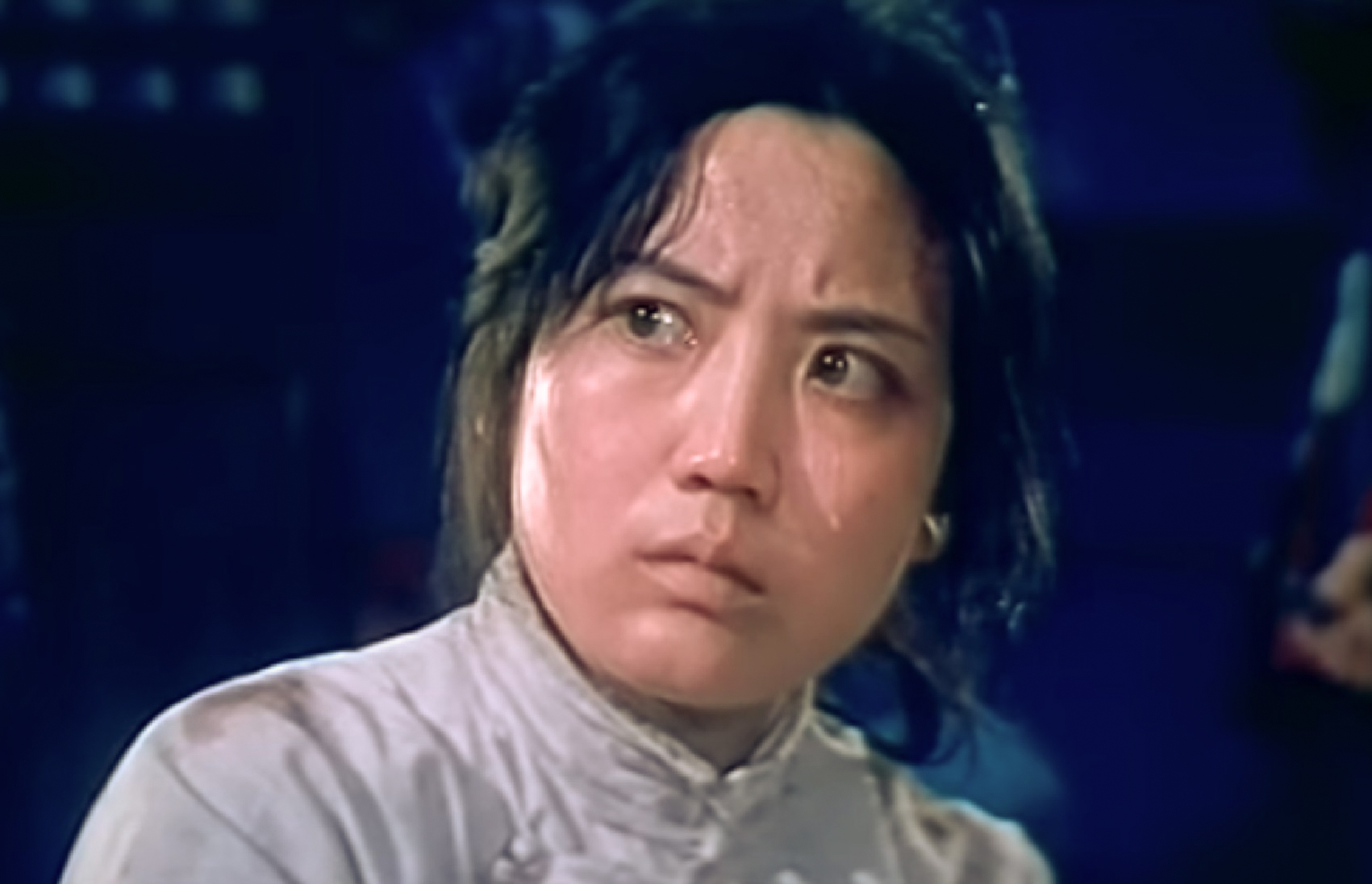 Shanghai Film Studios, Qiu Jin (1983)
Shanghai Film Studios, Qiu Jin (1983)
21. She Made New Friends
Despite what was coming for her, Qiu Jin’s time in Japan was formative. If Beijing had connected her with other ambitious women, Tokyo blew that right out of the water. She enroled in a Women’s Practical School and quickly connected with other progressive Chinese students studying there. Soon enough, she had another change of heart.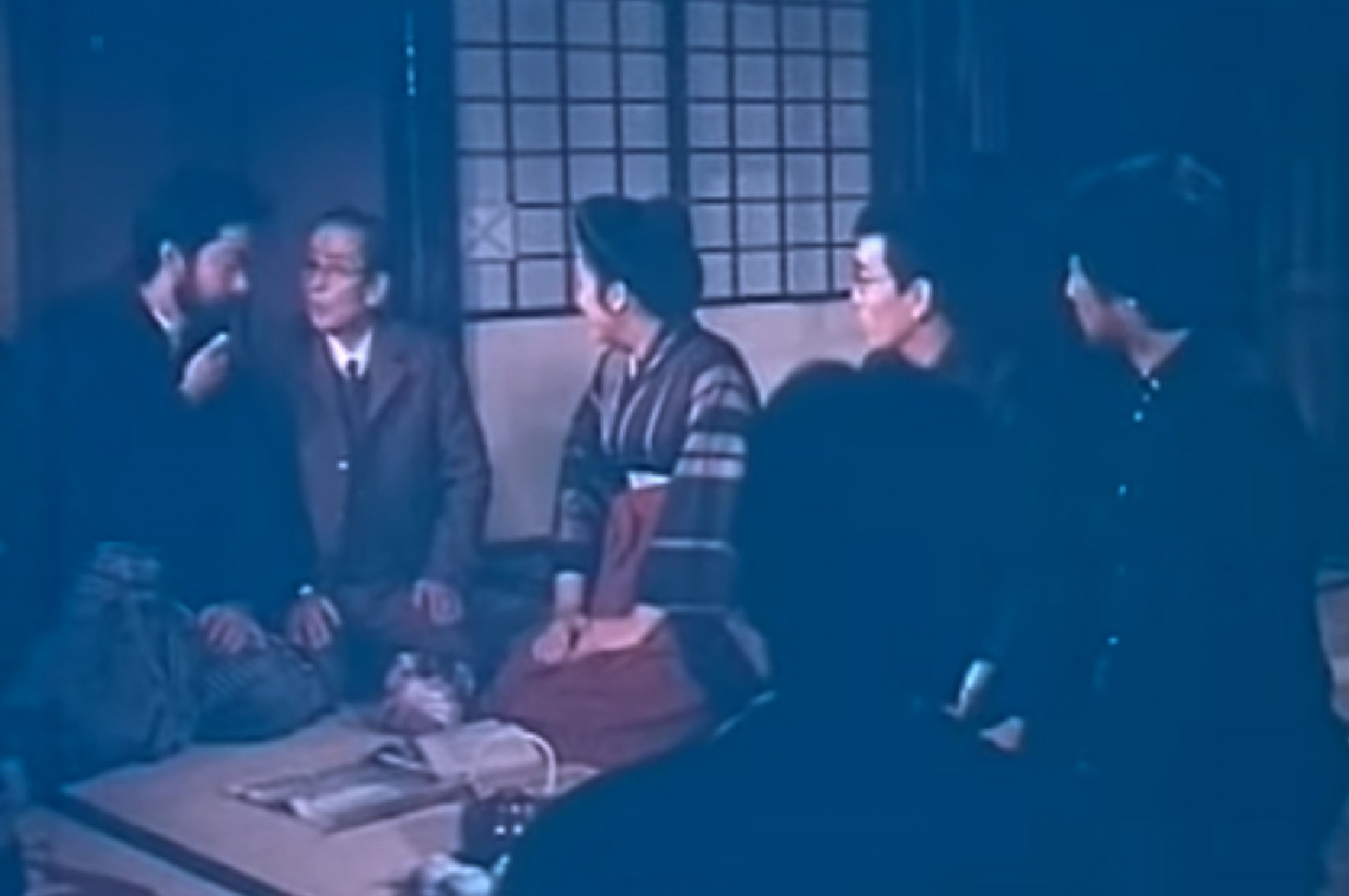 Shanghai Film Studios, Qiu Jin (1983)
Shanghai Film Studios, Qiu Jin (1983)
22. She Had Dark Suspicions
China had sent Qiu Jin and other citizens like her to learn from Japan. Something much more scandalous began happening. Instead of trying to gather information for her country, Qiu Jin and her peers began to believe that the Qing Dynasty—the ethnically Manchu ruling family of China—was utterly corrupt and needed to be taken down.
But Qiu being Qiu, she didn’t stop there.
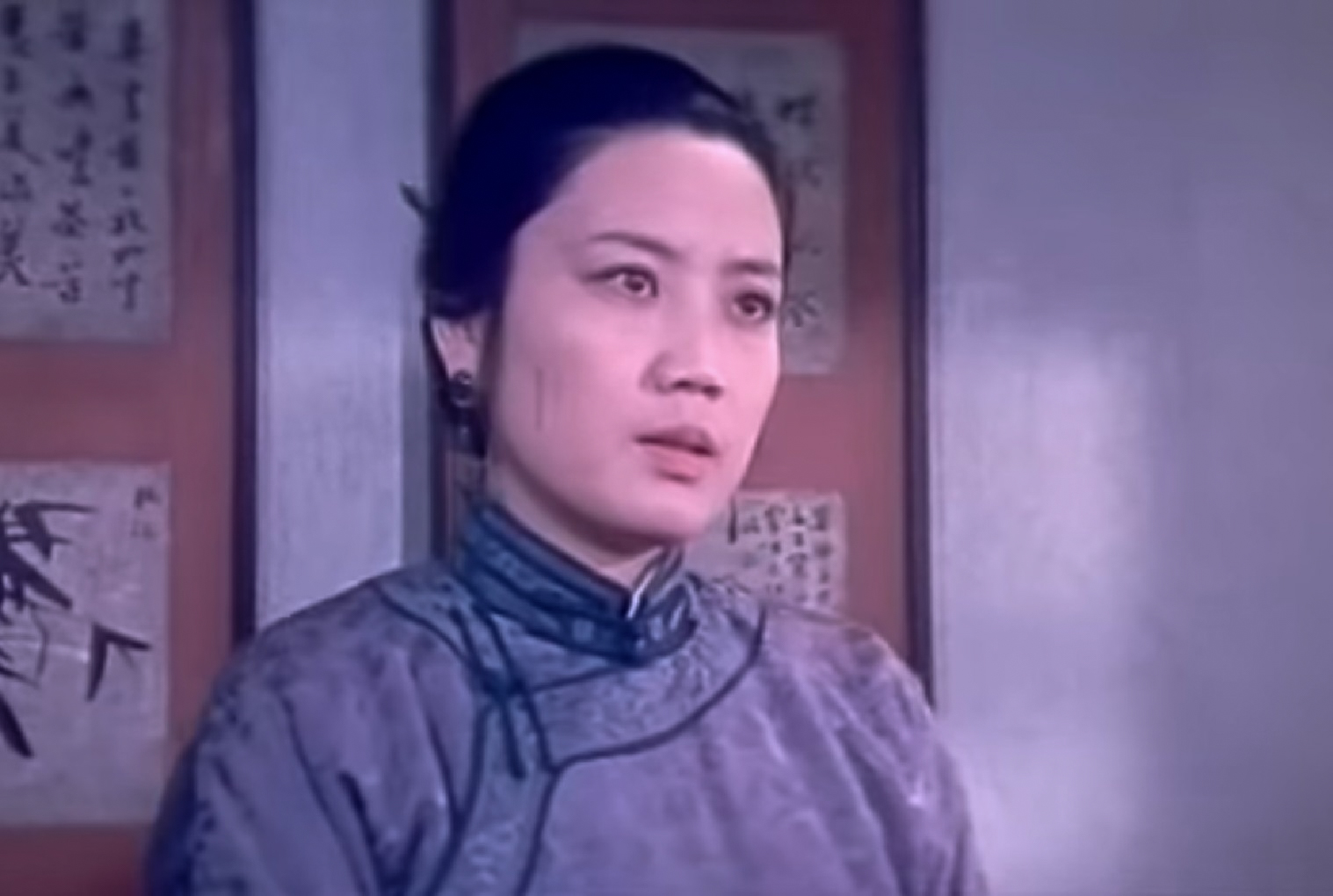 Shanghai Film Studios, Qiu Jin (1983)
Shanghai Film Studios, Qiu Jin (1983)
23. She Turned Into A Revolutionary
Qiu blossomed more than ever before while over in Japan, and she continued wearing male dress whenever she felt like it—which, as it turned out, was a lot. She also began some, er, interesting extracurriculars. She joined secret societies that sought to overthrow the Manchus’ Qing dynasty in favor of the Han people, a more populous but less powerful ethnic group.
Qiu’s transformation into a revolutionary was now complete. And this is where she really let it all out.
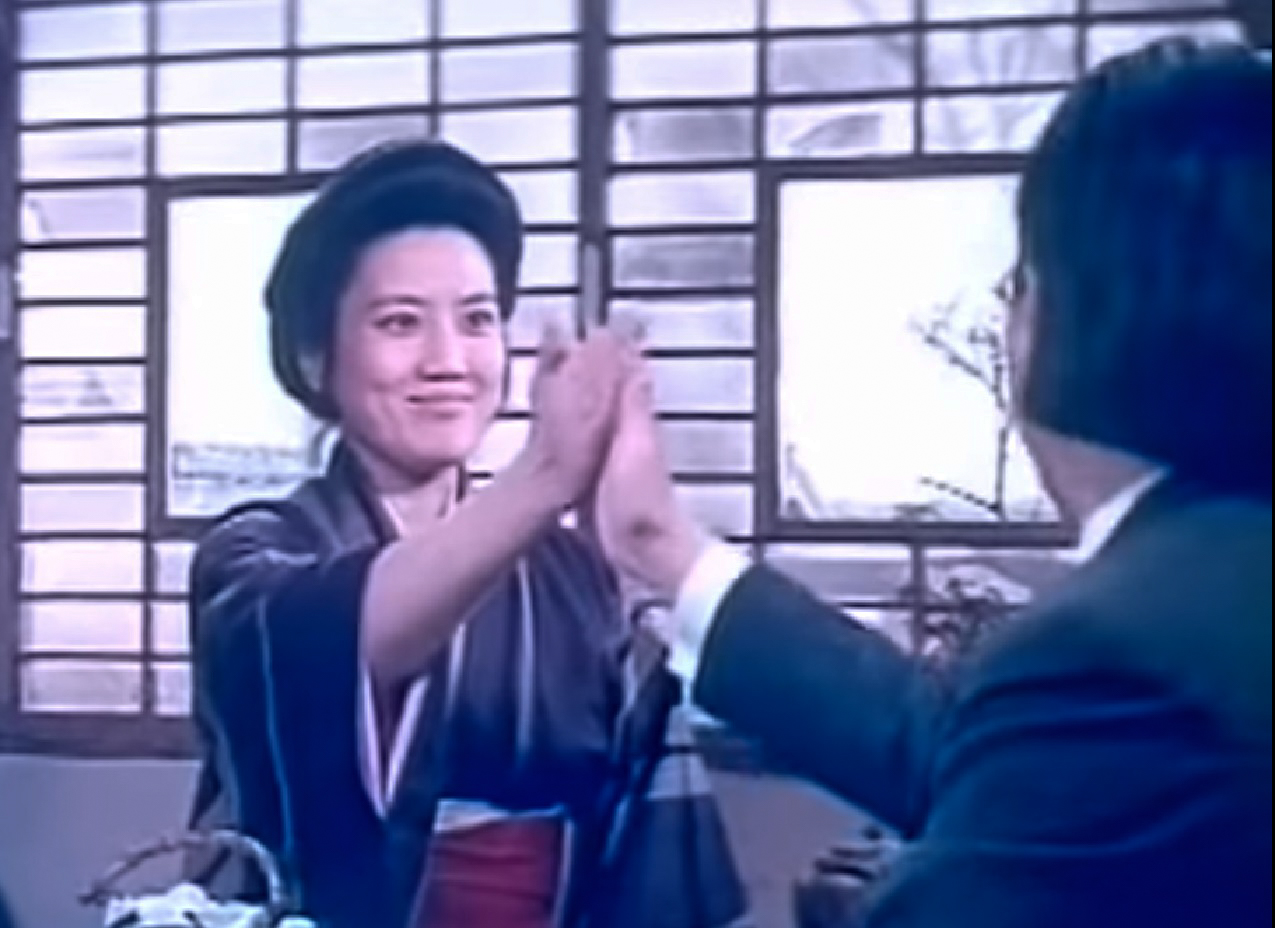 Shanghai Film Studios, Qiu Jin (1983)
Shanghai Film Studios, Qiu Jin (1983)
24. She Wanted To Save Her Country
Qiu and her compatriots were trying to overthrow the government in China, yes. Nonetheless, they saw themselves as Chinese nationalists, trying to bring glory and morality back to their beloved nation. Soon enough, then, a debate raged about whether they should go back to China from Japan and continue their revolutionary activities there.
Qiu, more fiery than ever, insisted they should go back. She showed her commitment in a terrifying way.
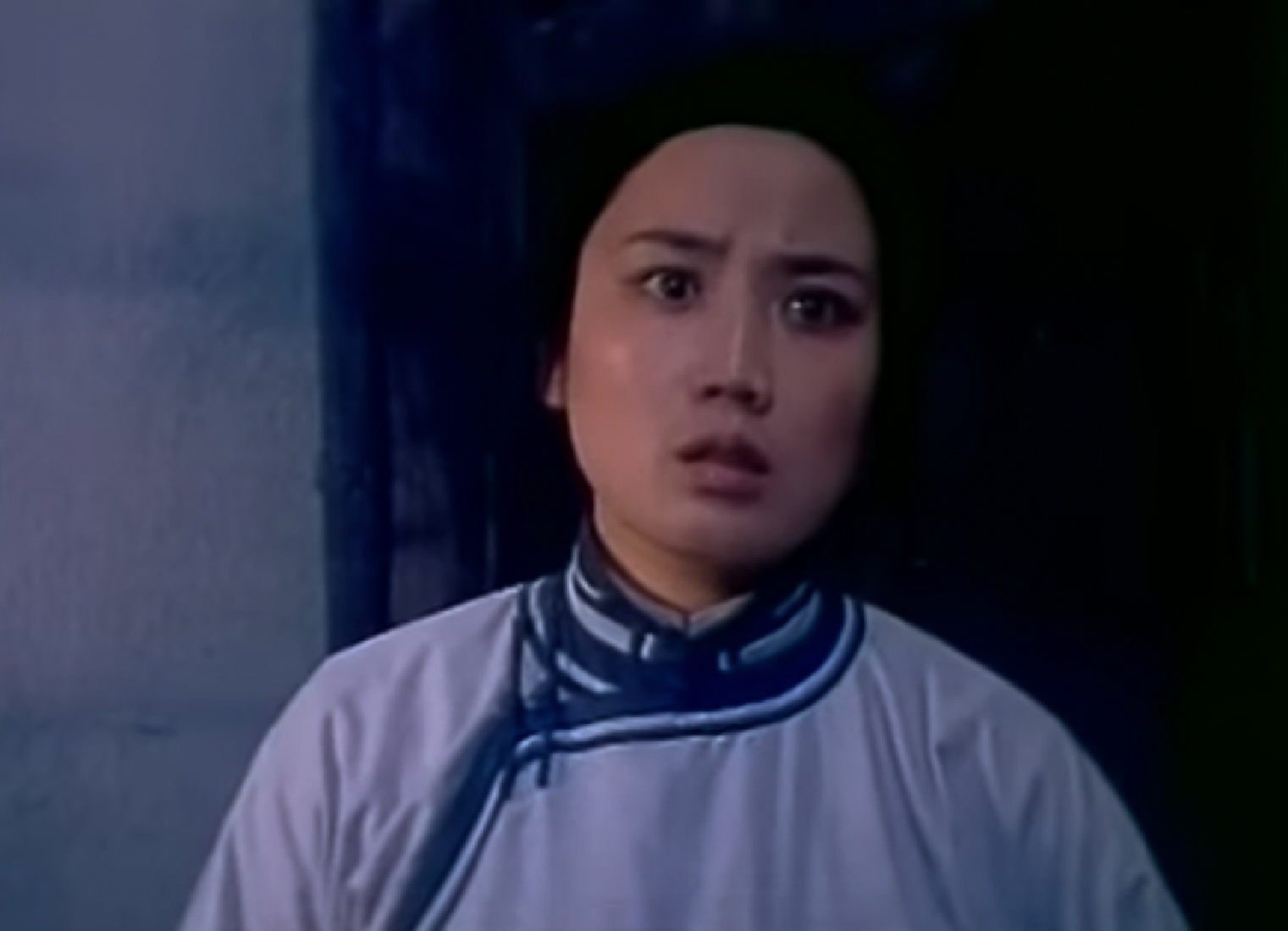 Shanghai Film Studios, Qiu Jin (1983)
Shanghai Film Studios, Qiu Jin (1983)
25. She Went To A Terrifying Extreme
At one meeting about what the future held for Qiu and her fellow revolutionaries, the noblewoman performed a disturbing act. Amidst arguments that going back to China would only mean surrender, Qiu took to the podium, slammed a dagger into it, and cried, “If I return to the motherland, surrender to the Manchu barbarians, and deceive the Han people, stab me with this dagger”.
Well, she put her money where her mouth was.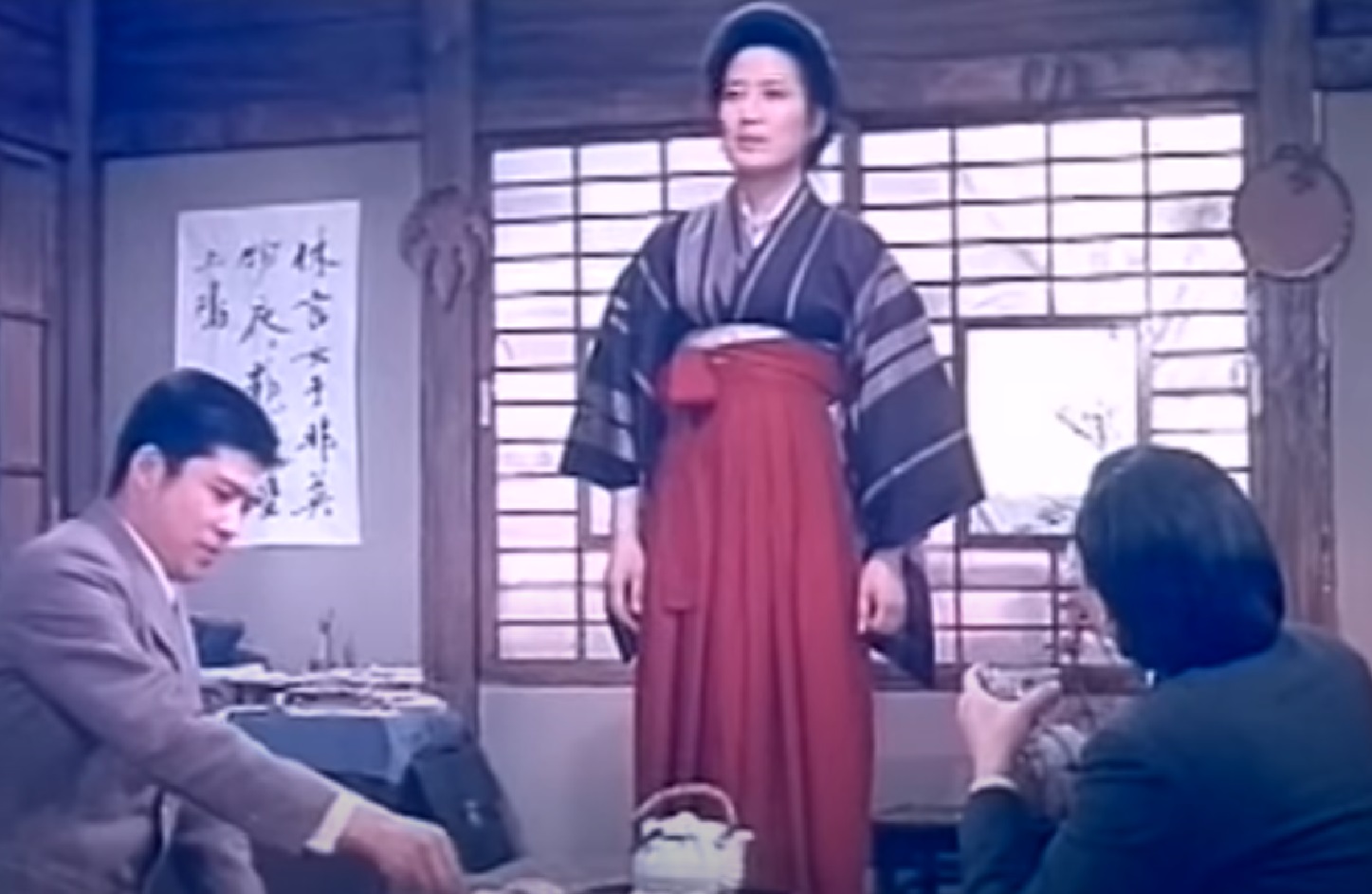 Shanghai Film Studios, Qiu Jin (1983)
Shanghai Film Studios, Qiu Jin (1983)
26. She Had A Controversial Homecoming
In 1906, Qiu returned to her homeland along with thousands of other students. Bright-eyed and bushy-tailed, they hoped to make a difference in the country they loved. For Qiu, this meant being brutally honest. Around this time, she published writings about her traumatic experiences with both foot-binding and arranged marriages for all to see.
Yet even as she wrote these pieces, she also made a huge sacrifice.
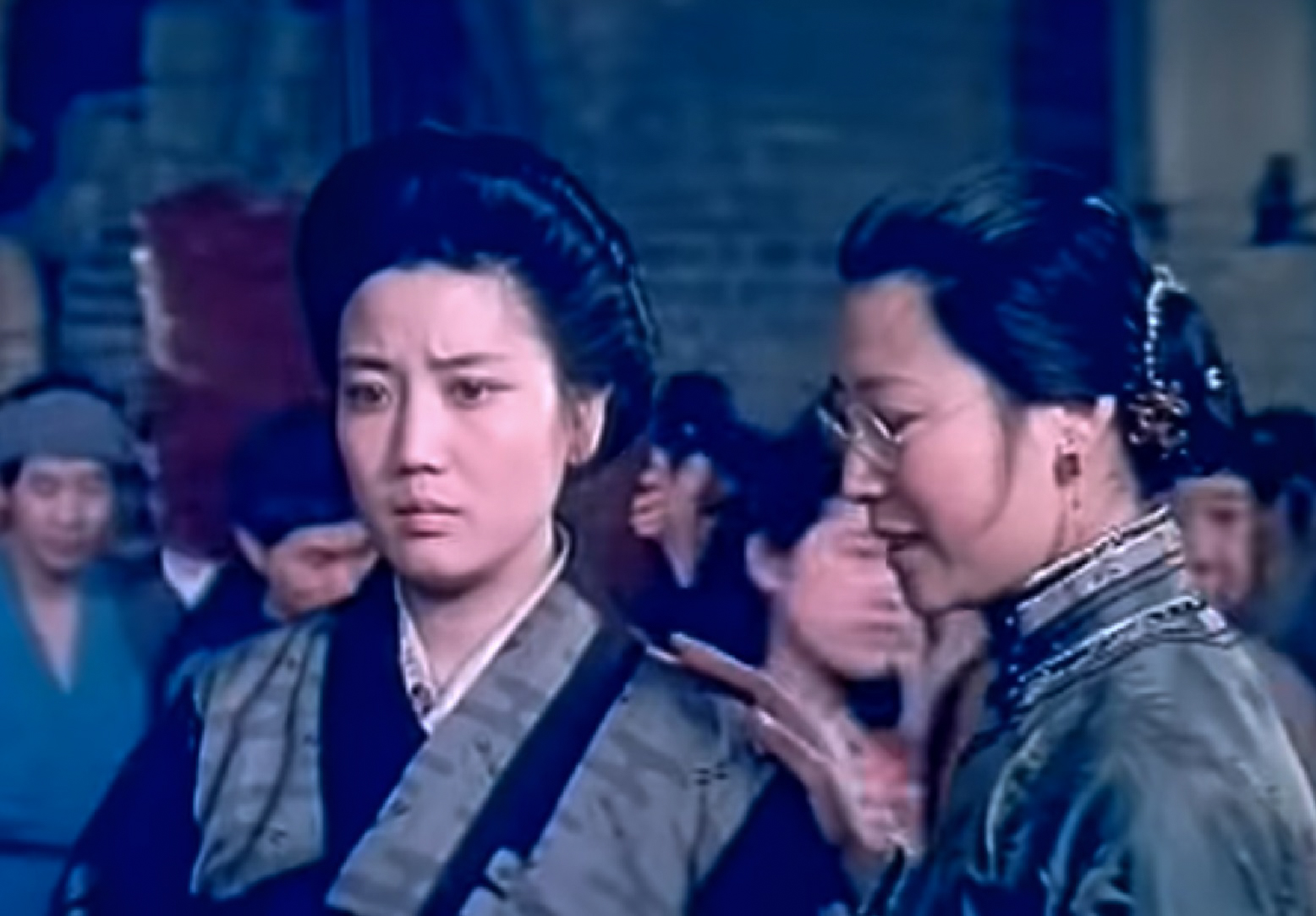 Shanghai Film Studios, Qiu Jin (1983)
Shanghai Film Studios, Qiu Jin (1983)
27. She Gave Up Her Old Life
In the end, nothing meant more to Qiu Jin than freeing the Han people from the Manchu rule—not even the poetry that had consumed her early years. In another passionate oration, she once said she was “tossing aside the brush to join the military ranks,” and urged other women to stop fiddling away at poetry and instead work physically for revolution.
Once more, she followed through a little too hard.
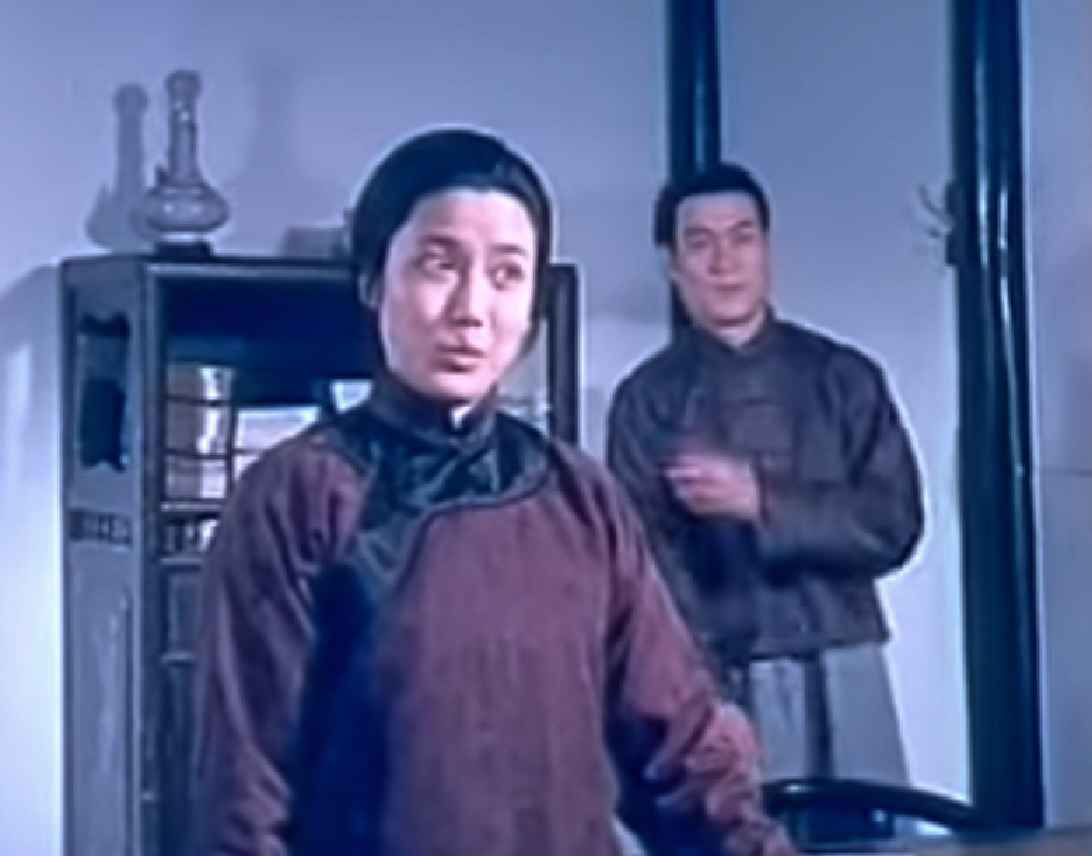 Shanghai Film Studios, Qiu Jin (1983)
Shanghai Film Studios, Qiu Jin (1983)
28. She Was A Lethal Weapon
When Qiu Jin tapered off her writing, she replaced it with a much different set of skills. Always interested in warfare and traditionally masculine endeavors, Qiu Jin now took up bomb making in her spare time. It was truly outrageous for a woman of her time, but Qiu wasn't alone. In fact, help came from closer to home than she might have expected.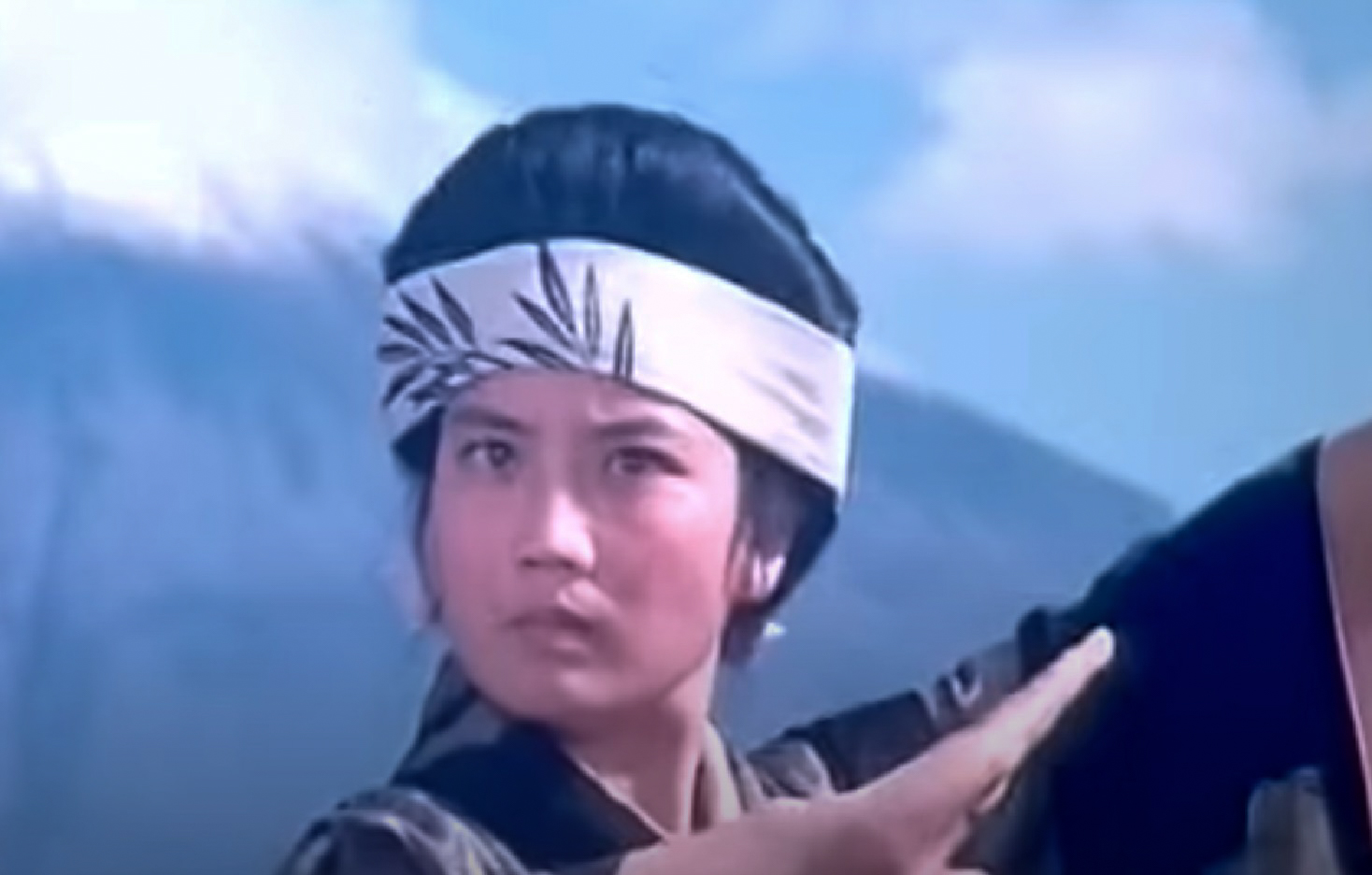 Shanghai Film Studios, Qiu Jin (1983)
Shanghai Film Studios, Qiu Jin (1983)
29. She Kept It In The Family
Although Qiu’s husband would obviously have nothing to do with her revolutionary activities, she did find a fellow traveler in her cousin, the revolutionary Xu Xilin. Together, they came up with a dangerous plan. They began to weave various rebel factions together, uniting the discontents into a stronger counterforce. Soon, it spun out of control.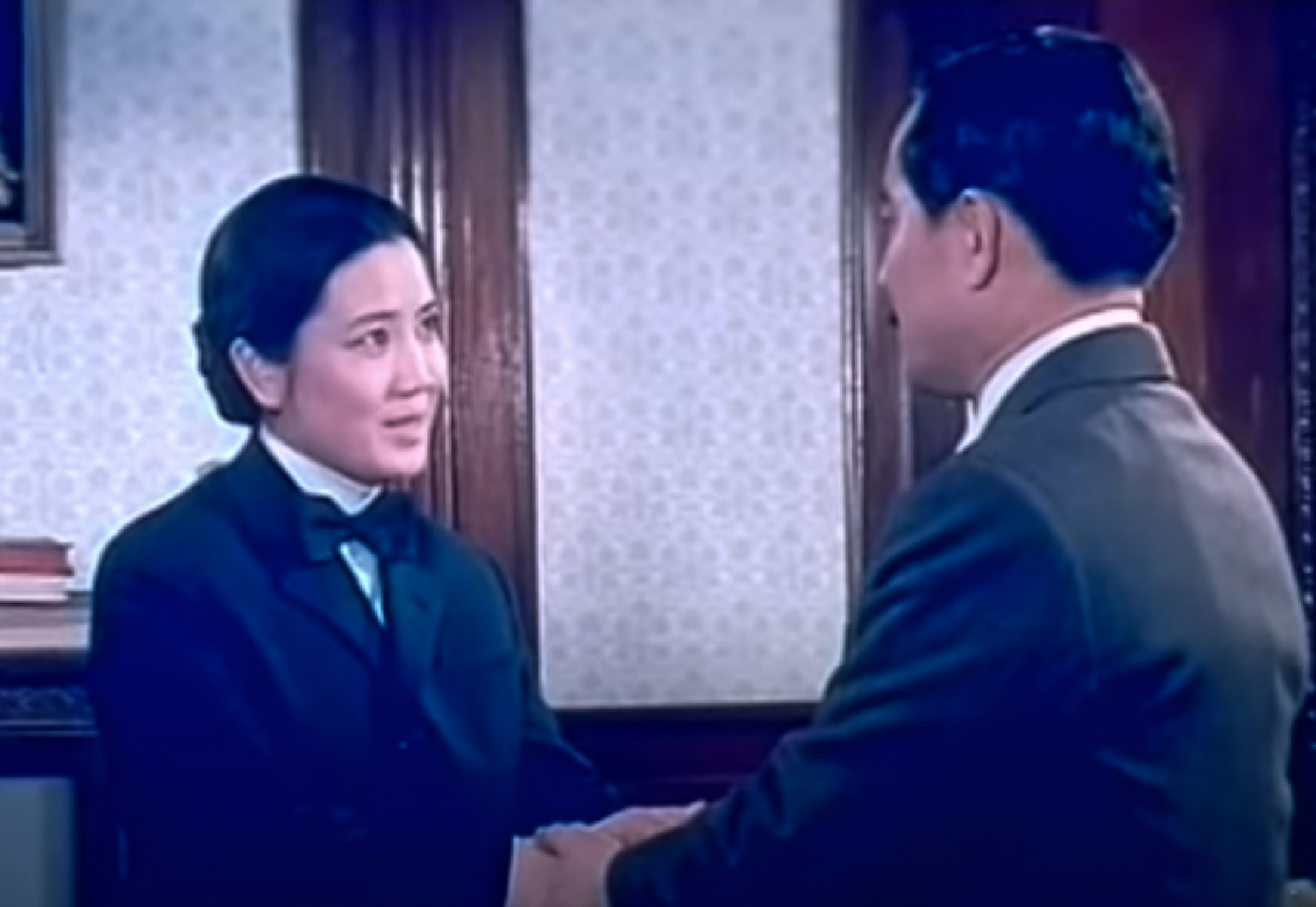 Shanghai Film Studios, Qiu Jin (1983)
Shanghai Film Studios, Qiu Jin (1983)
30. Her Country Was In Shambles
By the time Qiu Jin arrived back in China, open revolution was already popping up everywhere in the country, with countless uprisings and incidents keeping the Qing dynasty very busy. With Qiu and Xu’s efforts to unite their forces, moreover, the atmosphere was now at a boiling point.
In one way, this was very good for Qiu—this was, after all, her life’s work. It was also her downfall.
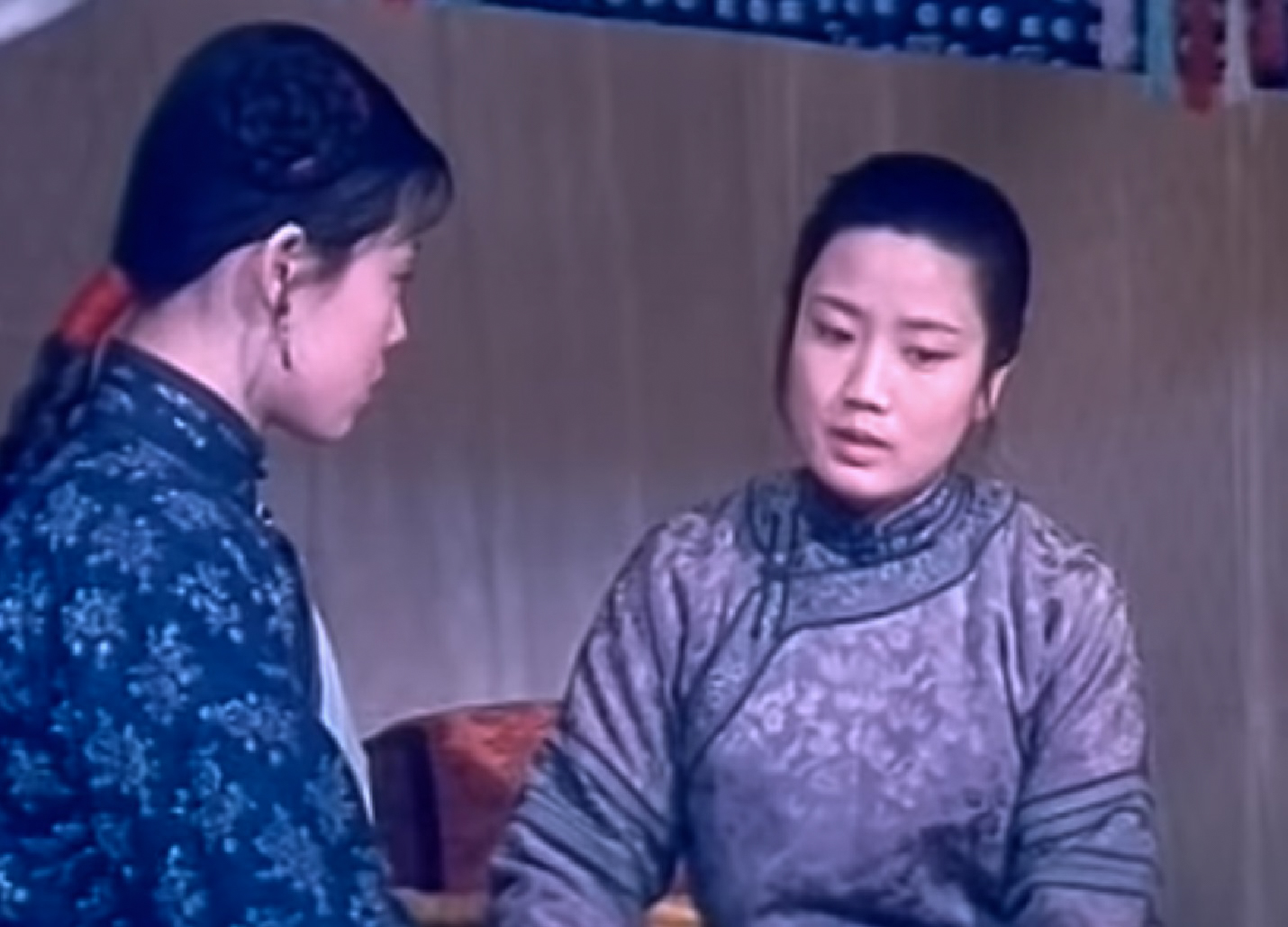 Shanghai Film Studios, Qiu Jin (1983)
Shanghai Film Studios, Qiu Jin (1983)
31. They Nabbed Her Conspirator
The Qing government was in no way ready to back down, and they began going after revolutionaries one by one, executing them as they saw fit. Then complete disaster struck. In 1907, officials found and arrested Qiu’s cousin Xu Xilin for allegedly planning an upcoming rebellion. When they threw him in an interrogation room, his confessions were jaw-dropping.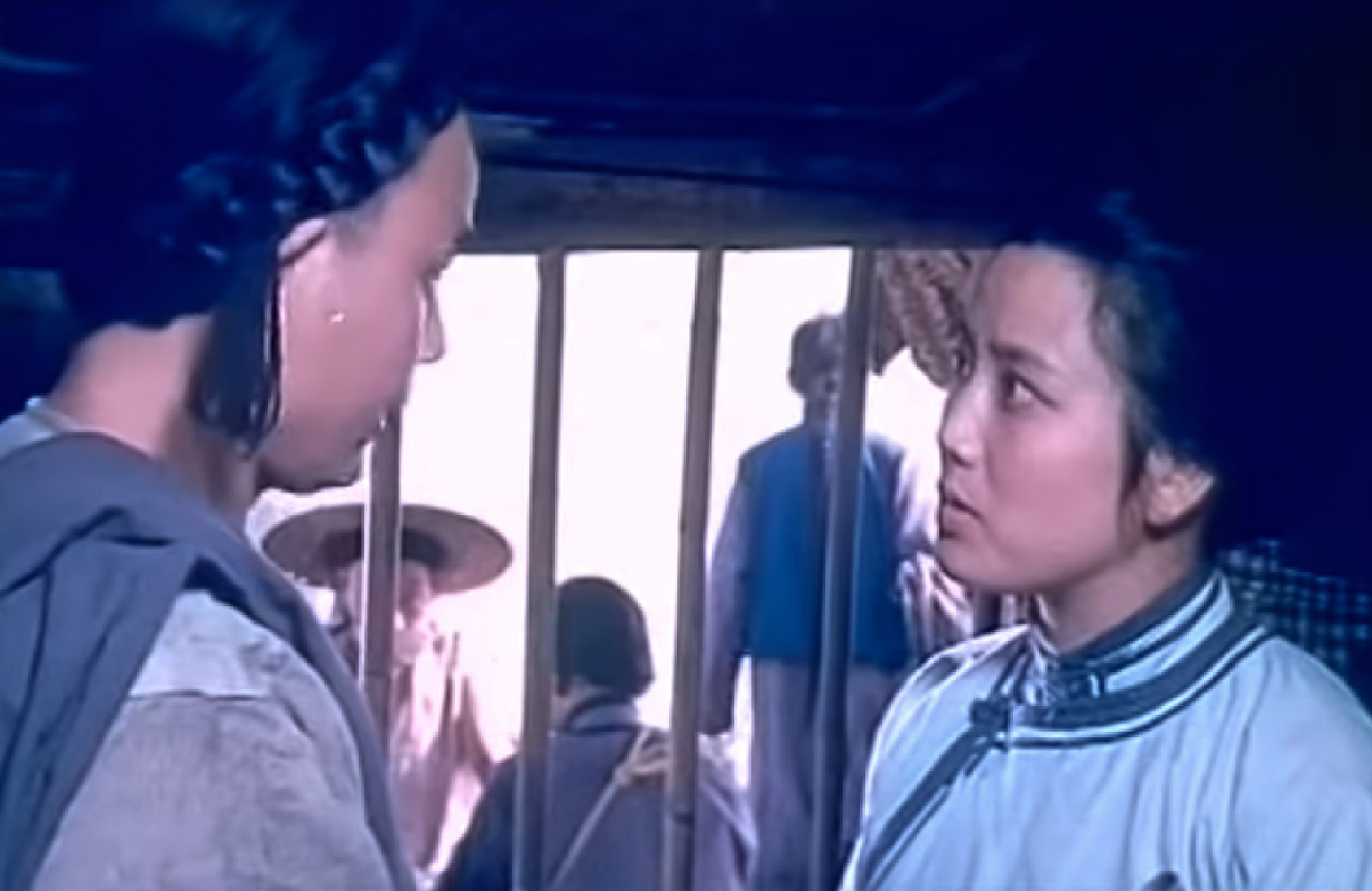 Shanghai Film Studios, Qiu Jin (1983)
Shanghai Film Studios, Qiu Jin (1983)
32. She Had Dangerous Friends
It’s easy to think of Qiu Jin and her fellow revolutionaries only happily heading to protests, but they were much braver and far more ruthless than that. In his interrogations, Xu admitted to offing a high-ranking provincial governor, En Ming, as part of his activities. Only, that wasn’t the most chilling part—his reason why was utterly disturbing.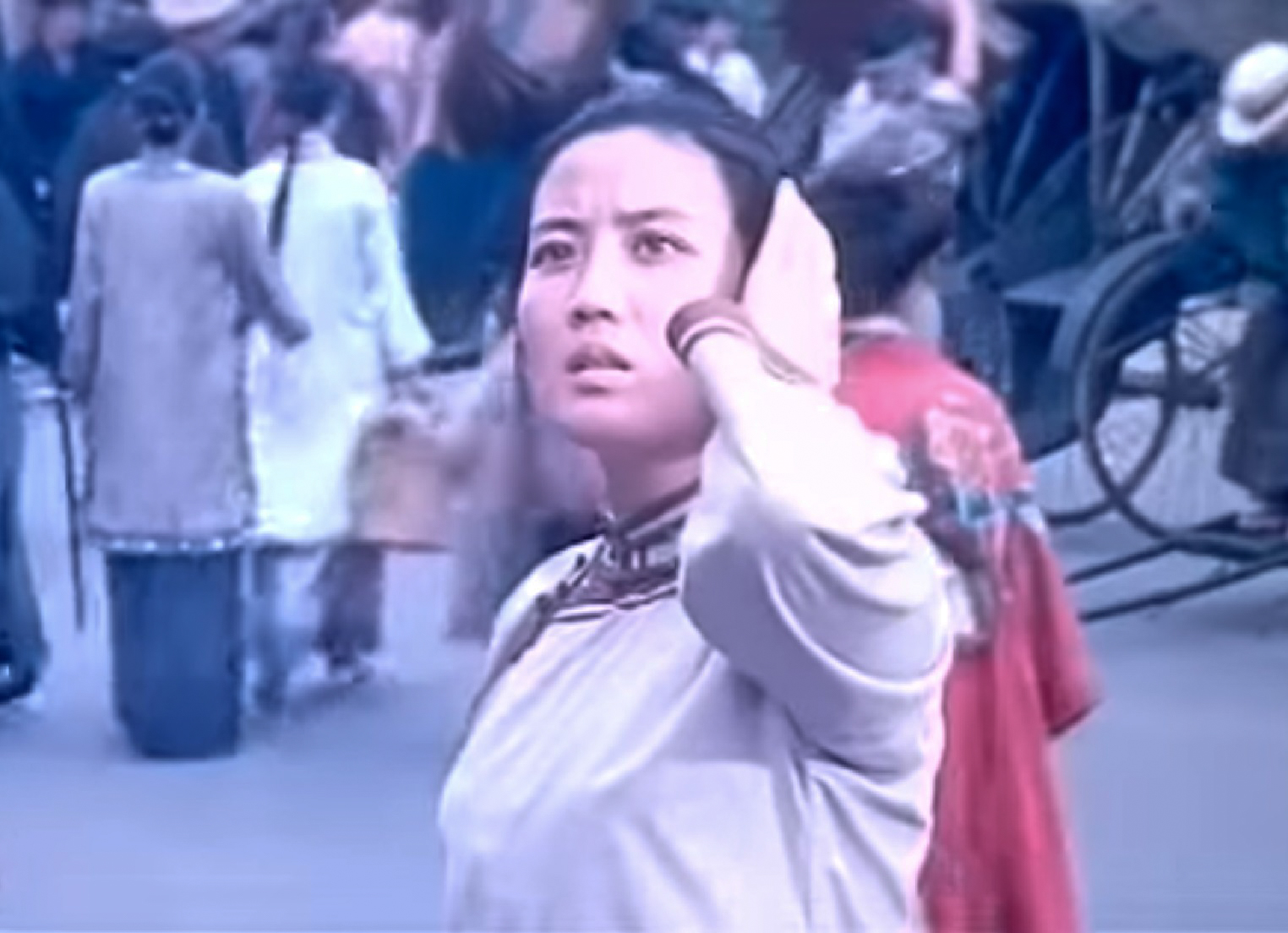 Shanghai Film Studios, Qiu Jin (1983)
Shanghai Film Studios, Qiu Jin (1983)
33. Her Cousin Was Ruthless
According to Xu Xilin, this governor En Ming was a target not because he had done anything particularly horrific, but simply because he was ethnically Manchu. Xu claimed he had a list of Manchu officials that he was ready to cross off, disposing of them through violent means.
It was a startling confession that casts a darker light on Qiu Jin’s own principles. Tragically, more horror was coming.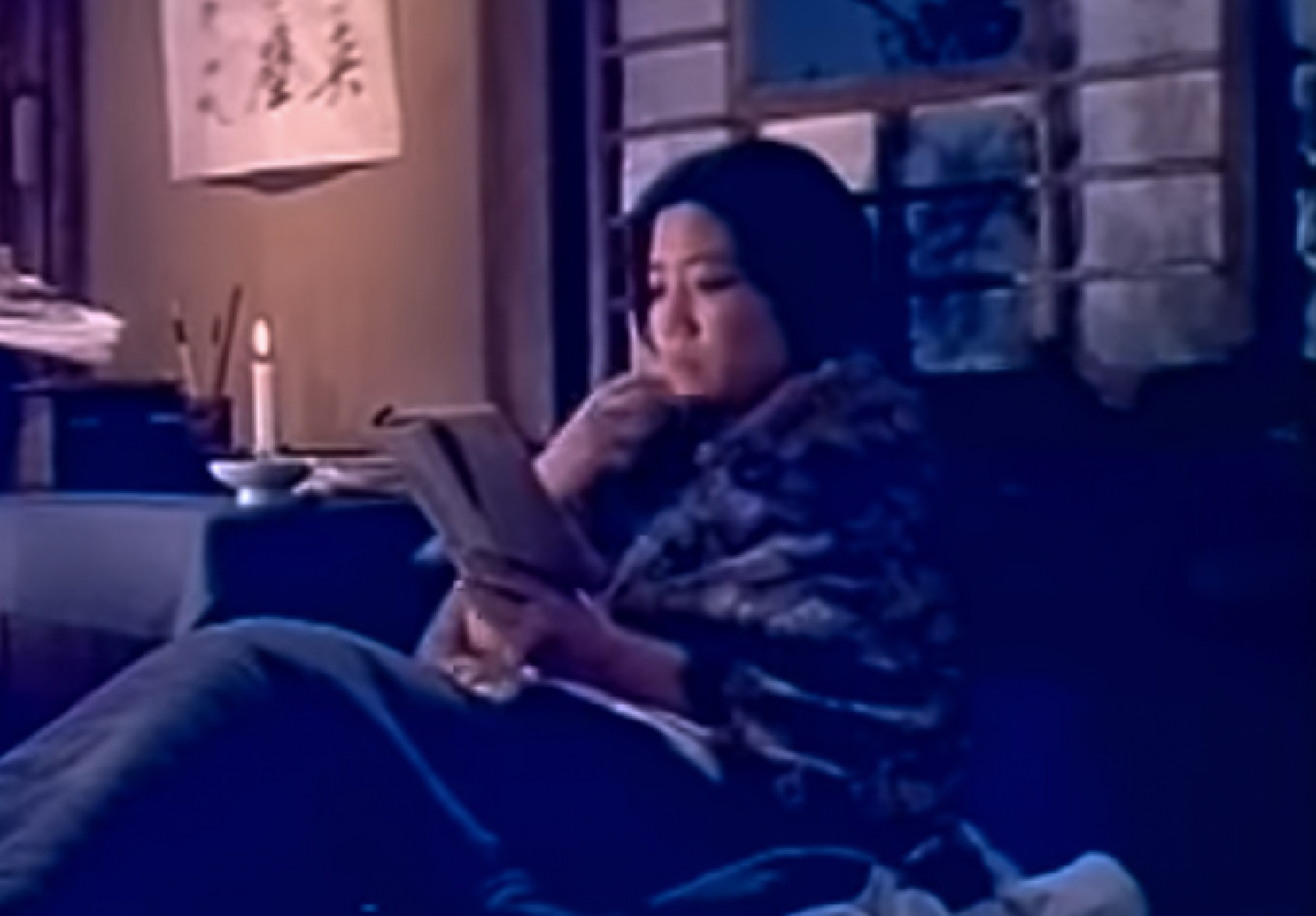 Shanghai Film Studios, Qiu Jin (1983)
Shanghai Film Studios, Qiu Jin (1983)
34. They Punished Him In A Horrible Way
The Qing dynasty hadn’t stayed in power by being meek, and their punishment for Qiu’s cousin was horrific. In a clear message to the other revolutionaries, they executed him via “slow slicing,” literally death by a thousand cuts. As if that weren’t enough, Qiu’s sworn enemies in the Qing government went even further.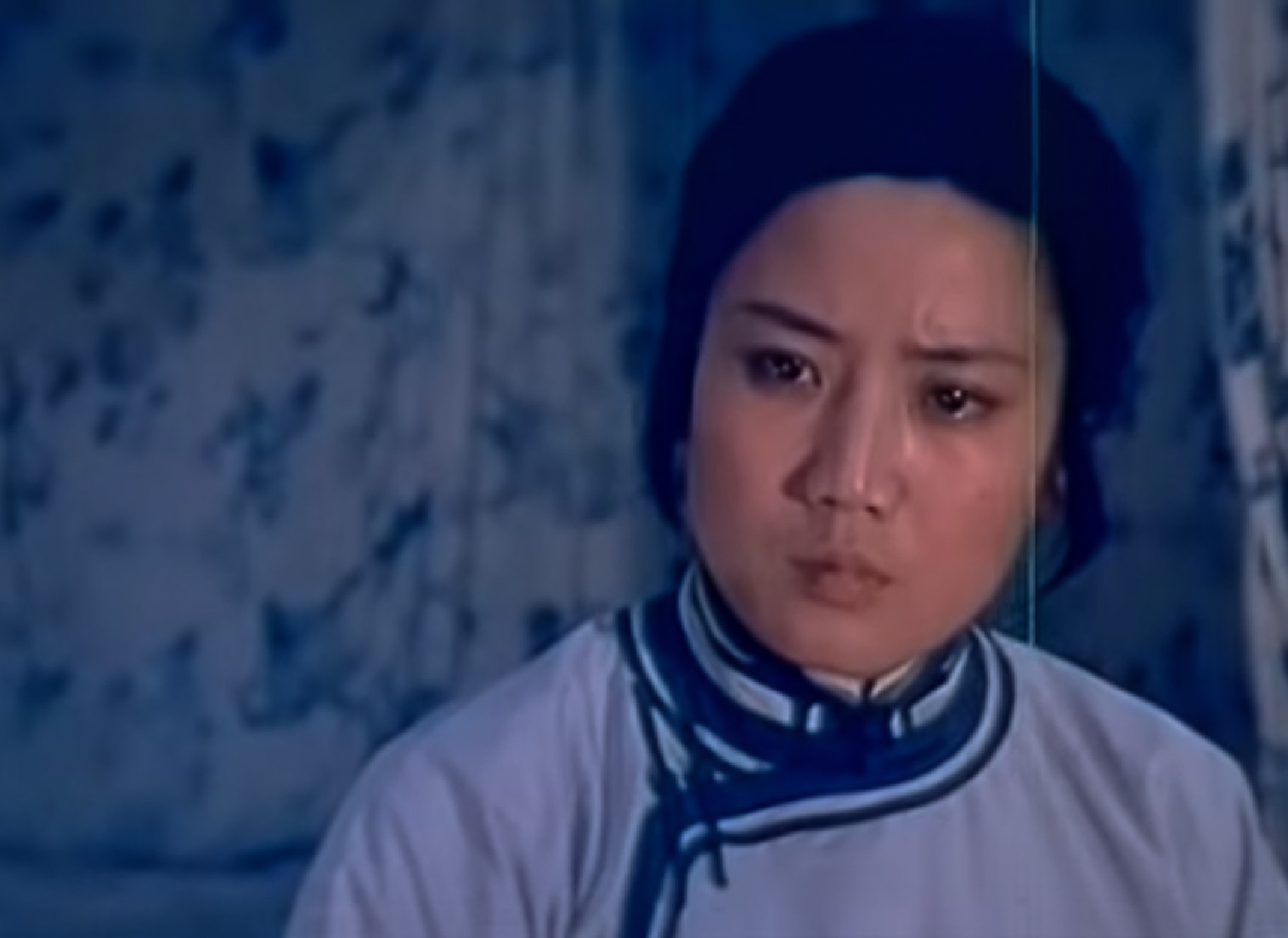 Shanghai Film Studios, Qiu Jin (1983)
Shanghai Film Studios, Qiu Jin (1983)
35. It Got Personal
After Xu Xilin finally perished, the government had a special, personal insult left in store. They then allowed En Ming’s bodyguards to get revenge on their governor by cutting out Xu Xilin’s heart and liver. It was a brutal way to go. If only the rampage stopped there. Instead, it just moved closer to poor Qiu Jin.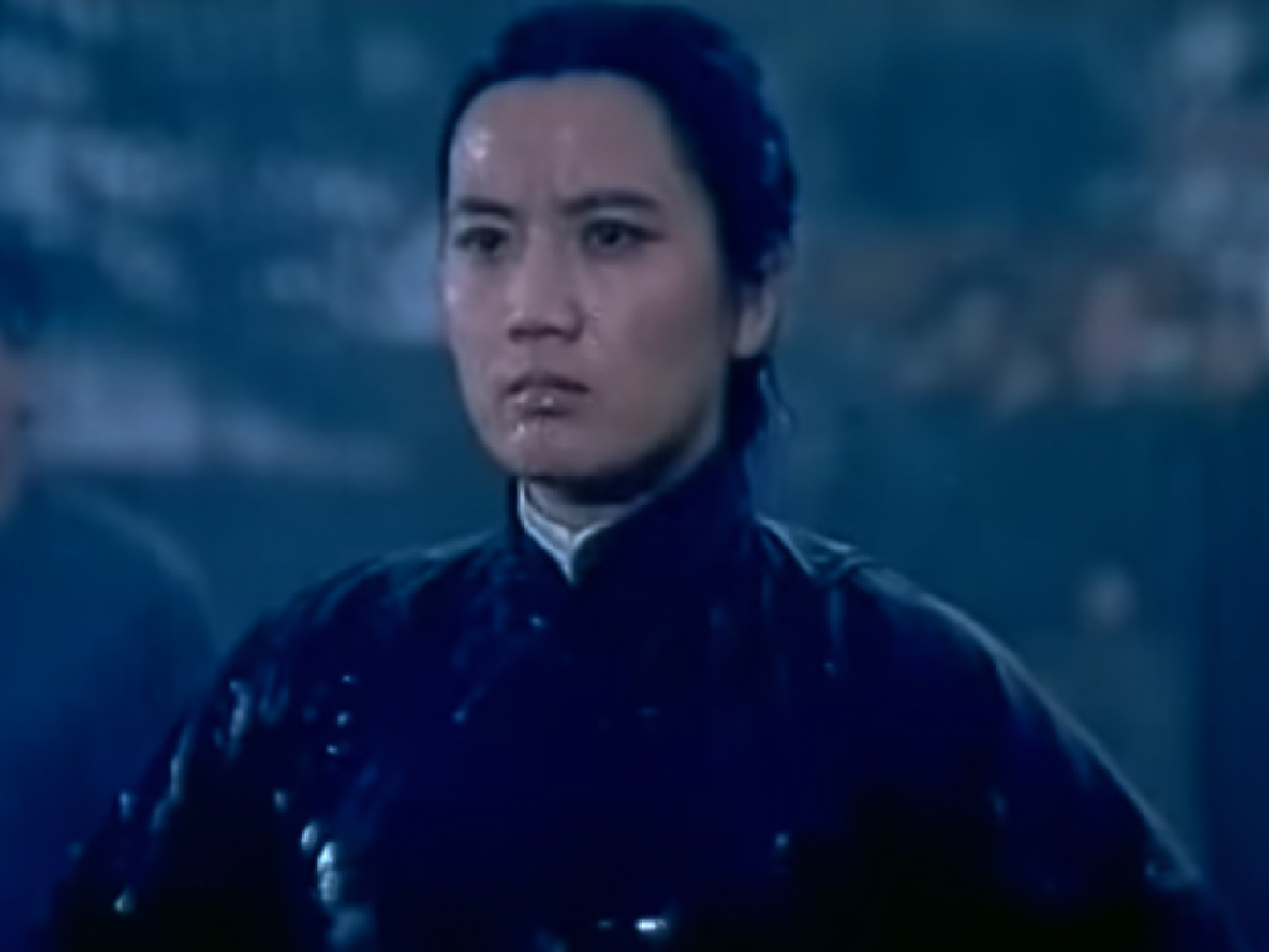 Shanghai Film Studios, Qiu Jin (1983)
Shanghai Film Studios, Qiu Jin (1983)
36. She Heard Horrible News
While Xu Xilin was taking his last breaths, Qiu Jin was steadfastly running a school her cousin had founded to teach students progressive principles. Soon after, she heard devastating news. Yes, she heard that Xu was gone—a crushing blow to be sure. But then her allies told her even worse tidings. The government was aware Xu had a co-conspirator, and they were headed right for her.
Her response has gone down in infamy.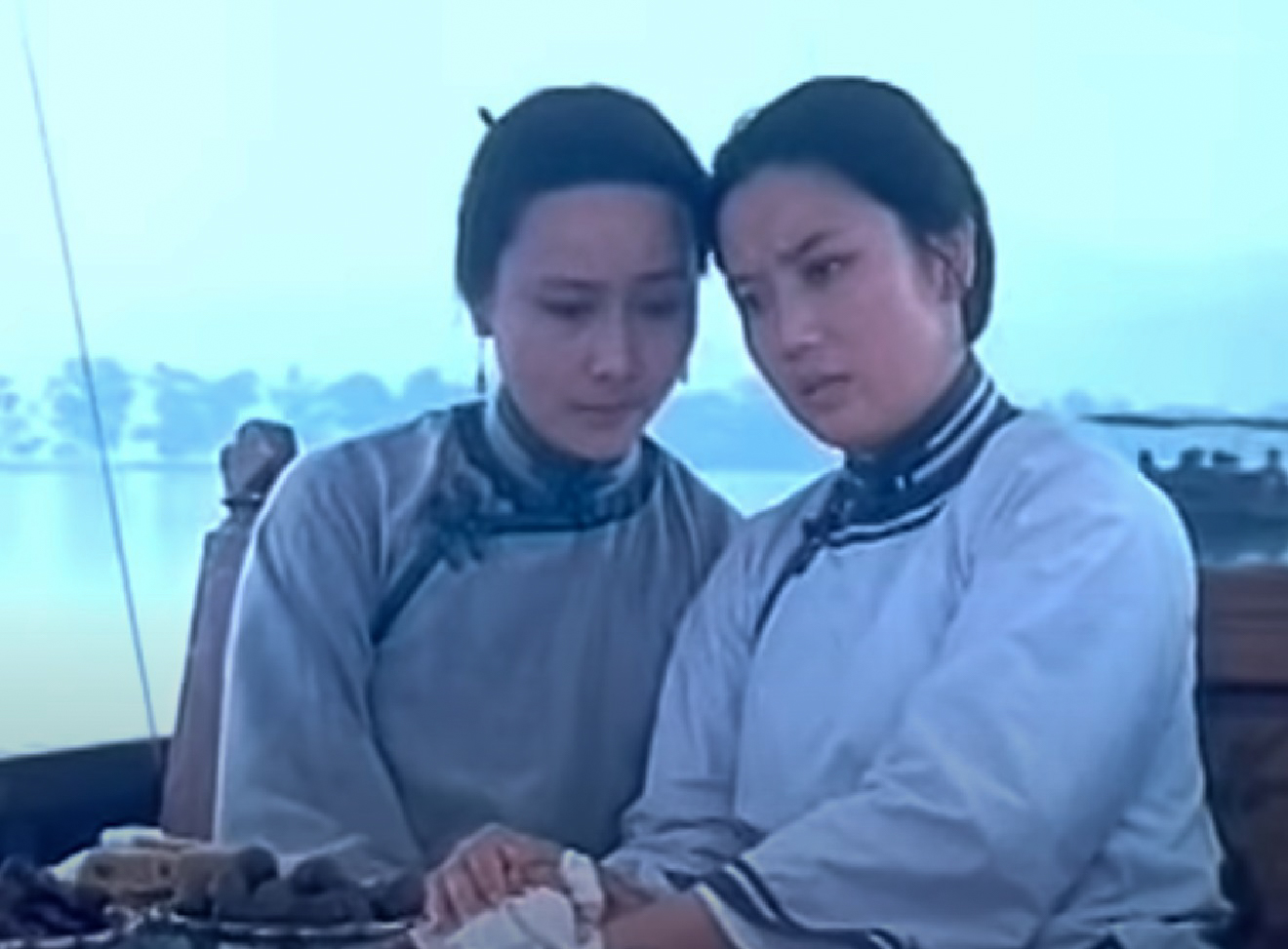 Shanghai Film Studios, Qiu Jin (1983)
Shanghai Film Studios, Qiu Jin (1983)
37. She Made A Baffling Decision
There’s no denying that Qiu Jin was one of the bravest fighters of her generation, but sometimes she could be too brave. With this forewarning, she could have done any number of things—chief among them, fleeing the city and going into hiding. However, that simply wasn’t Qiu’s style, and she refused to leave. Instead, she made a fateful decision. Some would say a fatal error.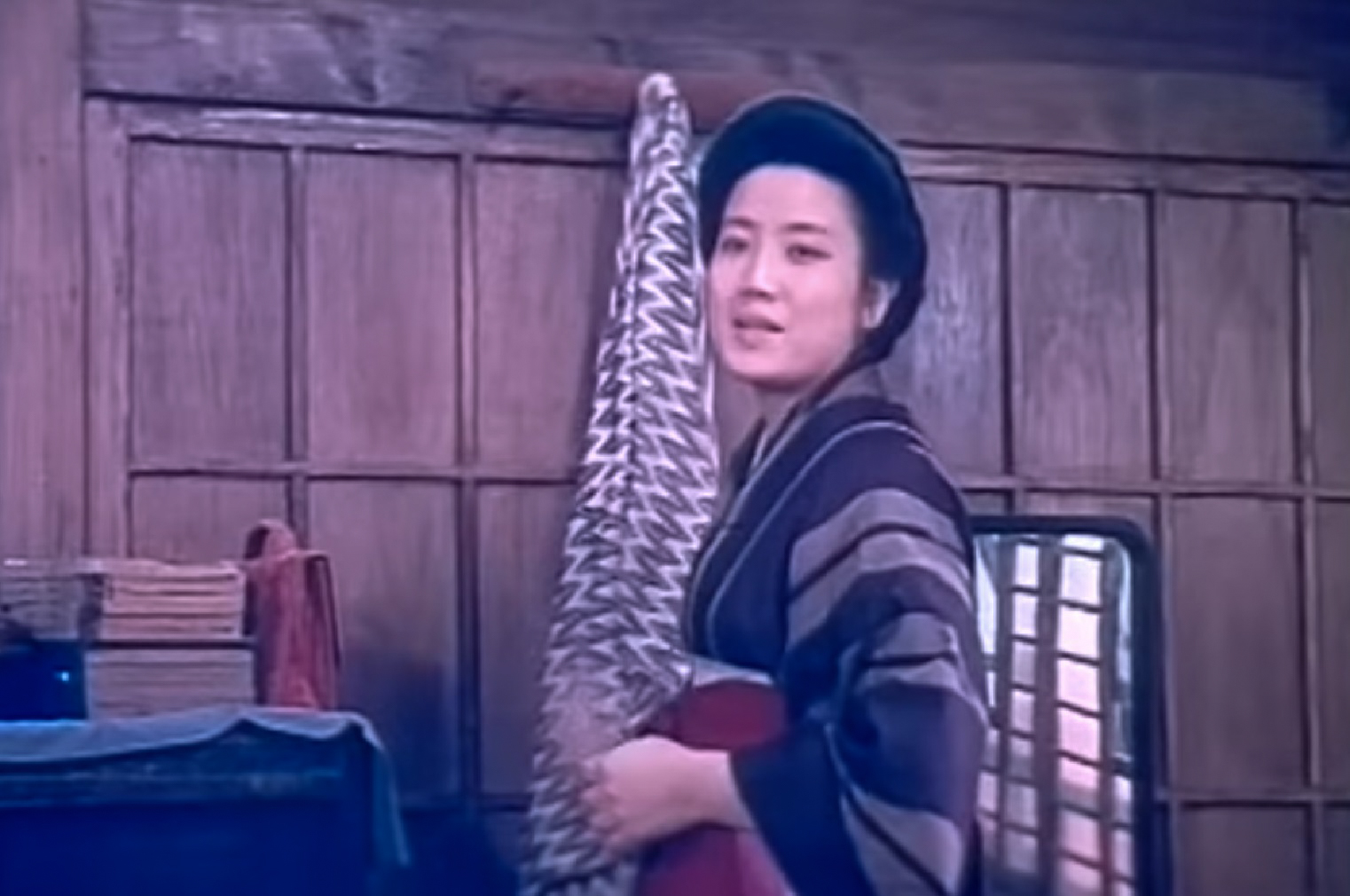 Shanghai Film Studios, Qiu Jin (1983)
Shanghai Film Studios, Qiu Jin (1983)
38. She Had A Crushing Defeat
Qiu was an idealist at heart, and she wanted to make the biggest statement she could with the officials. She intended to stay and fight, putting on as much of a show as humanly possible. It went exactly how you think it would. One woman wasn’t enough for an entire dynastic force, and after a brief struggle, they arrested her.
But Qiu Jin still had bitter surprises for her enemies.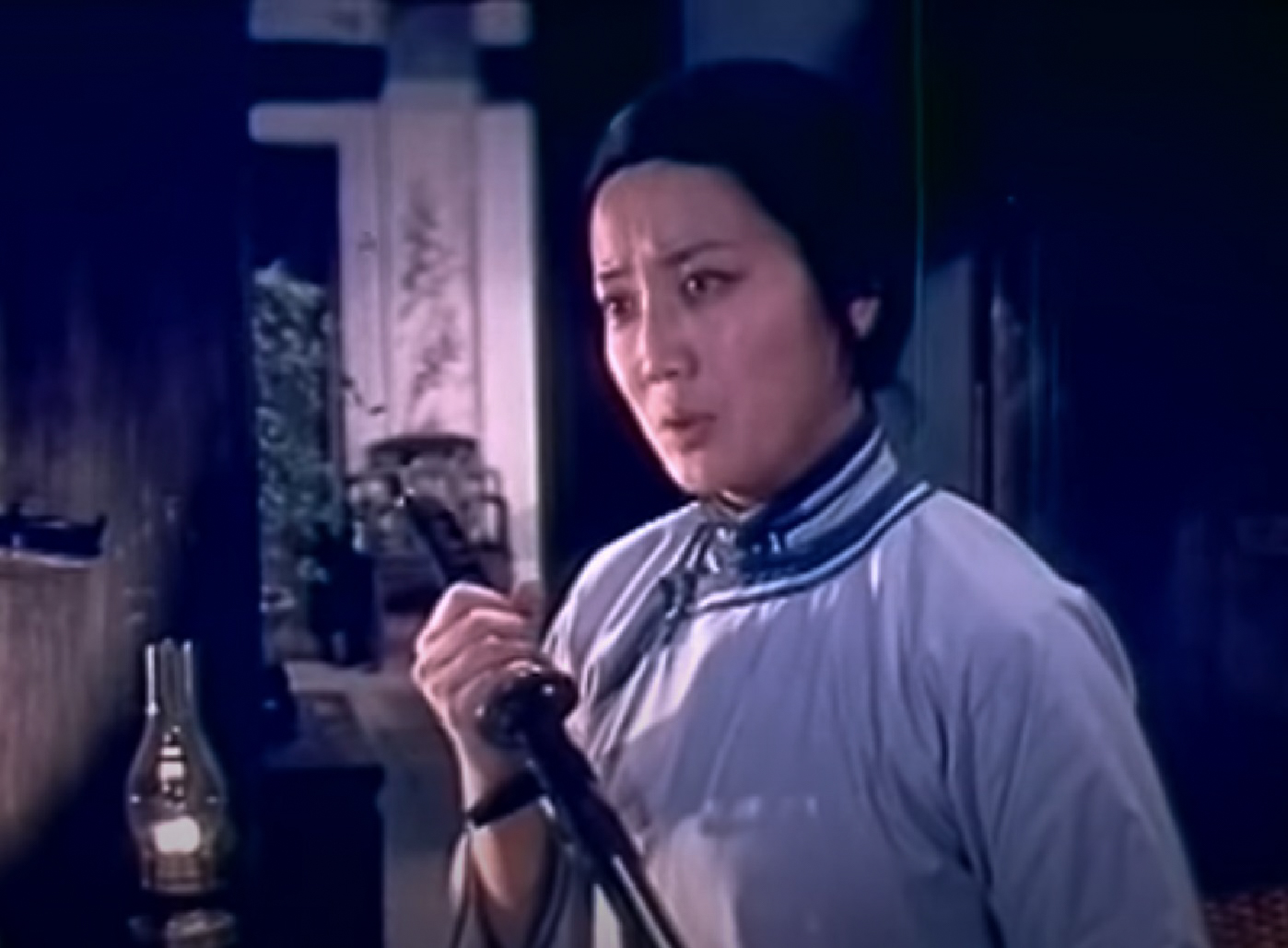 Shanghai Film Studios, Qiu Jin (1983)
Shanghai Film Studios, Qiu Jin (1983)
39. She Showed Incredible Strength
Just like with her tragic cousin Xu Xilin, authorities tormented Qiu Jin in their interrogations, trying to get information out of her about an upcoming plan for rebellion. But unlike with Xu Xilin, Qiu Jin refused to talk. She never spoke of her involvement in the planning, and didn’t give up any of her fellow rebels in these “conversations”.
Sadly, though, the powers-that-be had other means to bring her ruin.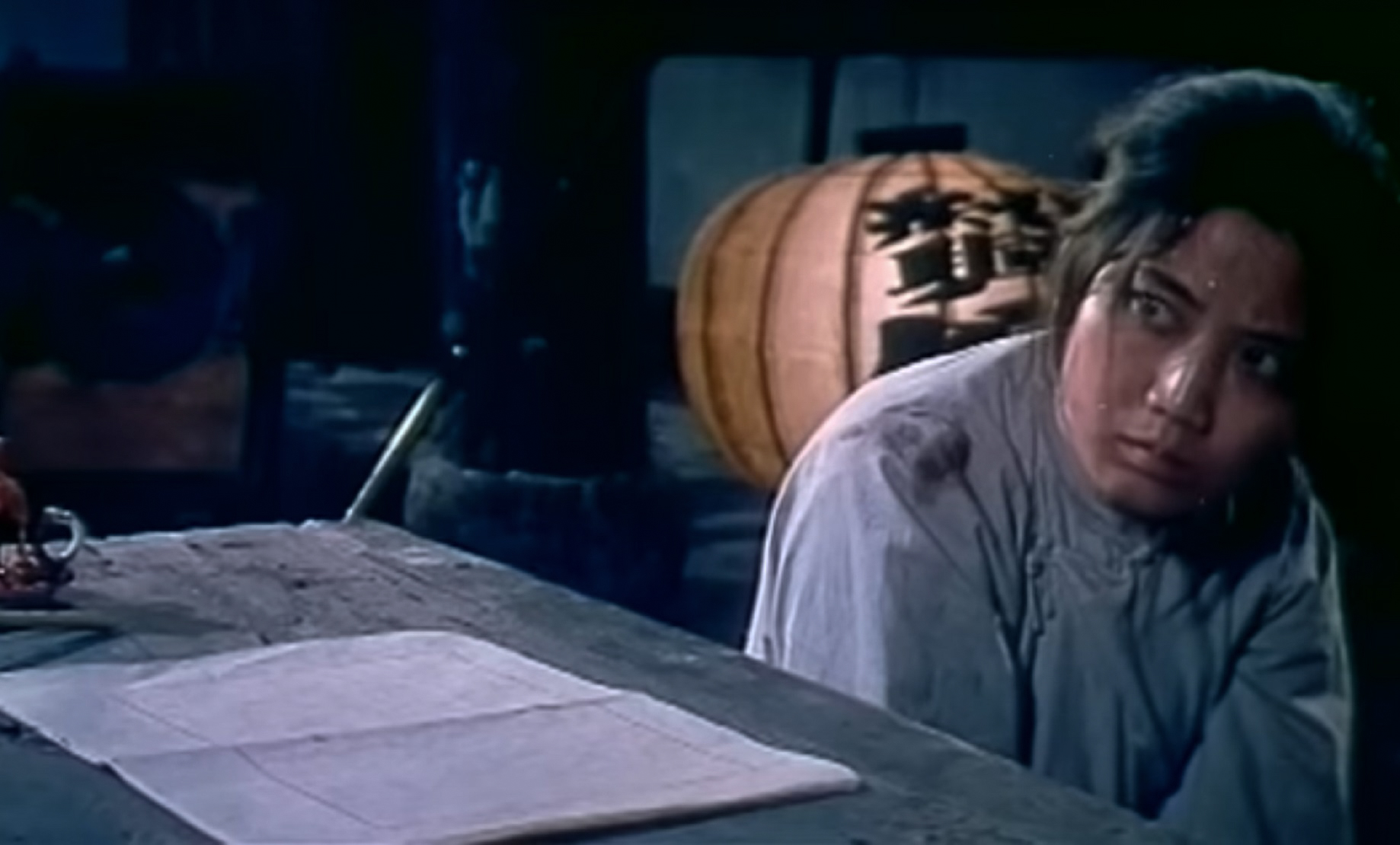 Shanghai Film Studios, Qiu Jin (1983)
Shanghai Film Studios, Qiu Jin (1983)
40. Her Own Work Damned Her
In the end, Qiu Jin’s beautiful writings brought about her downfall. While they couldn’t get any proof from Qiu’s mouth, authorities took it from her pen, using her poetry and articles as “evidence” of her treason. In short order, they sentenced her to death—and this brought about perhaps the most tragic scene of Qiu Jin’s life.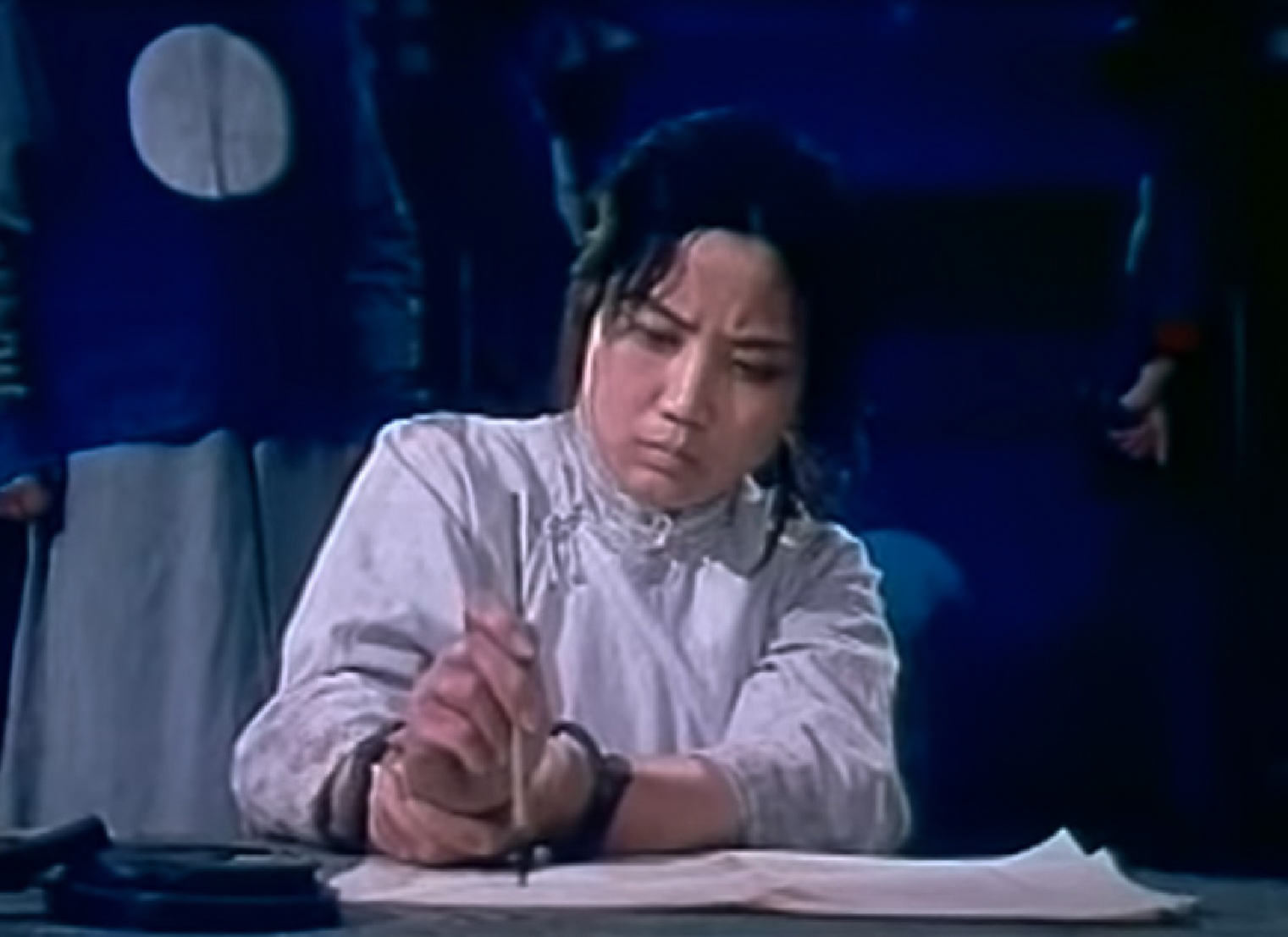 Shanghai Film Studios, Qiu Jin (1983)
Shanghai Film Studios, Qiu Jin (1983)
41. She Got A Final Public Humiliation
Imperial China really knew how to destroy people. Their plan for Qiu Jin was utterly horrific. They set up a public beheading in no less than her home village, making sure everyone she grew up with knew her disgrace in the eyes of the government. On July 15, 1907, Qiu Jin met her dark fate at only 31 years old.
But little did the Qing government know, she wasn’t done with them yet.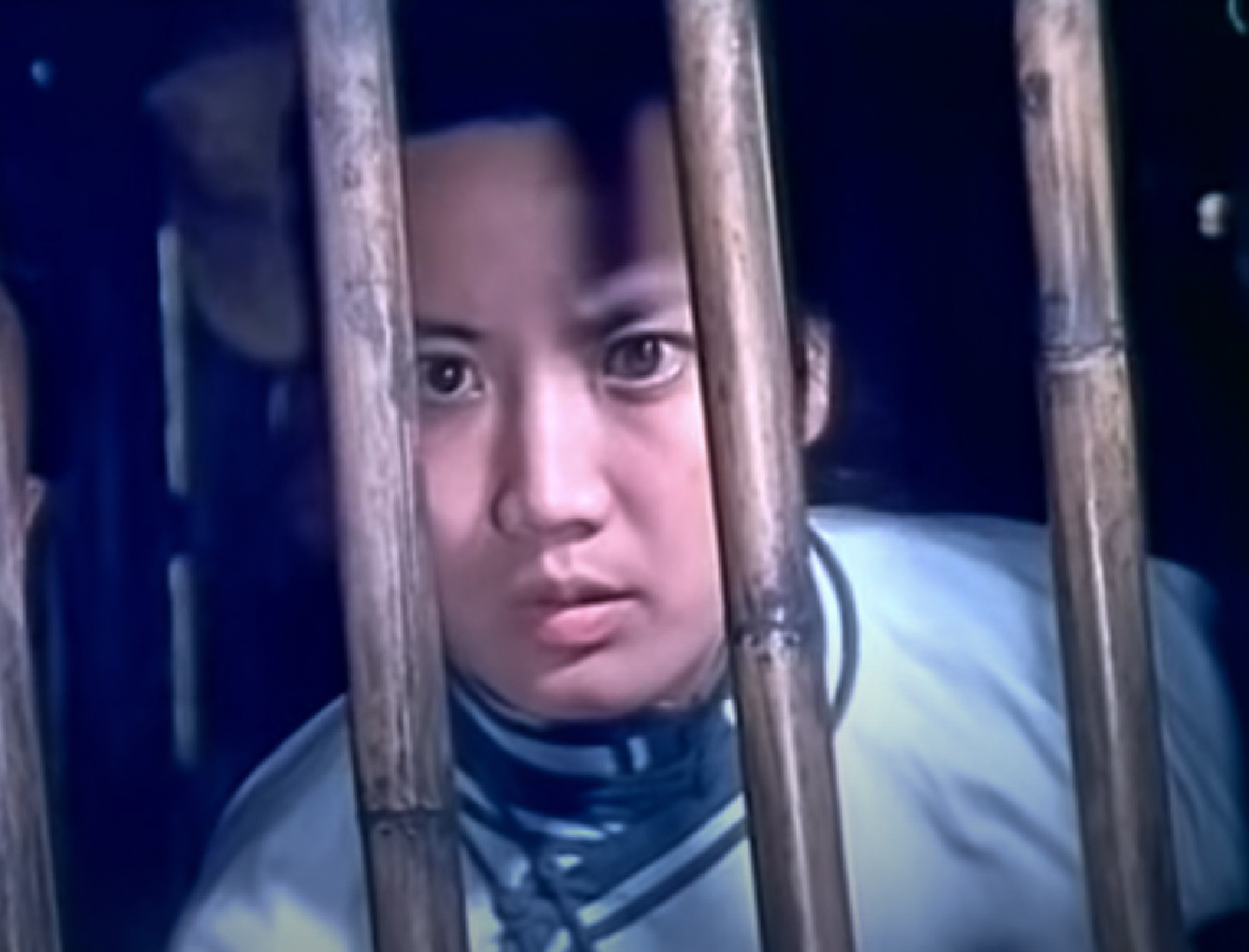 Shanghai Film Studios, Qiu Jin (1983)
Shanghai Film Studios, Qiu Jin (1983)
42. She Was A Secret Weapon
See, the authorities had just made a huge mistake—they had turned a powerful, breathing woman into a superhuman martyr. In the wake of her passing, her allies wrote essays mourning her and inciting even more rebellion against the vicious government, calling her “unjustly besmirched”. Then, from beyond the grave, Qiu put the cherry on top of her revenge.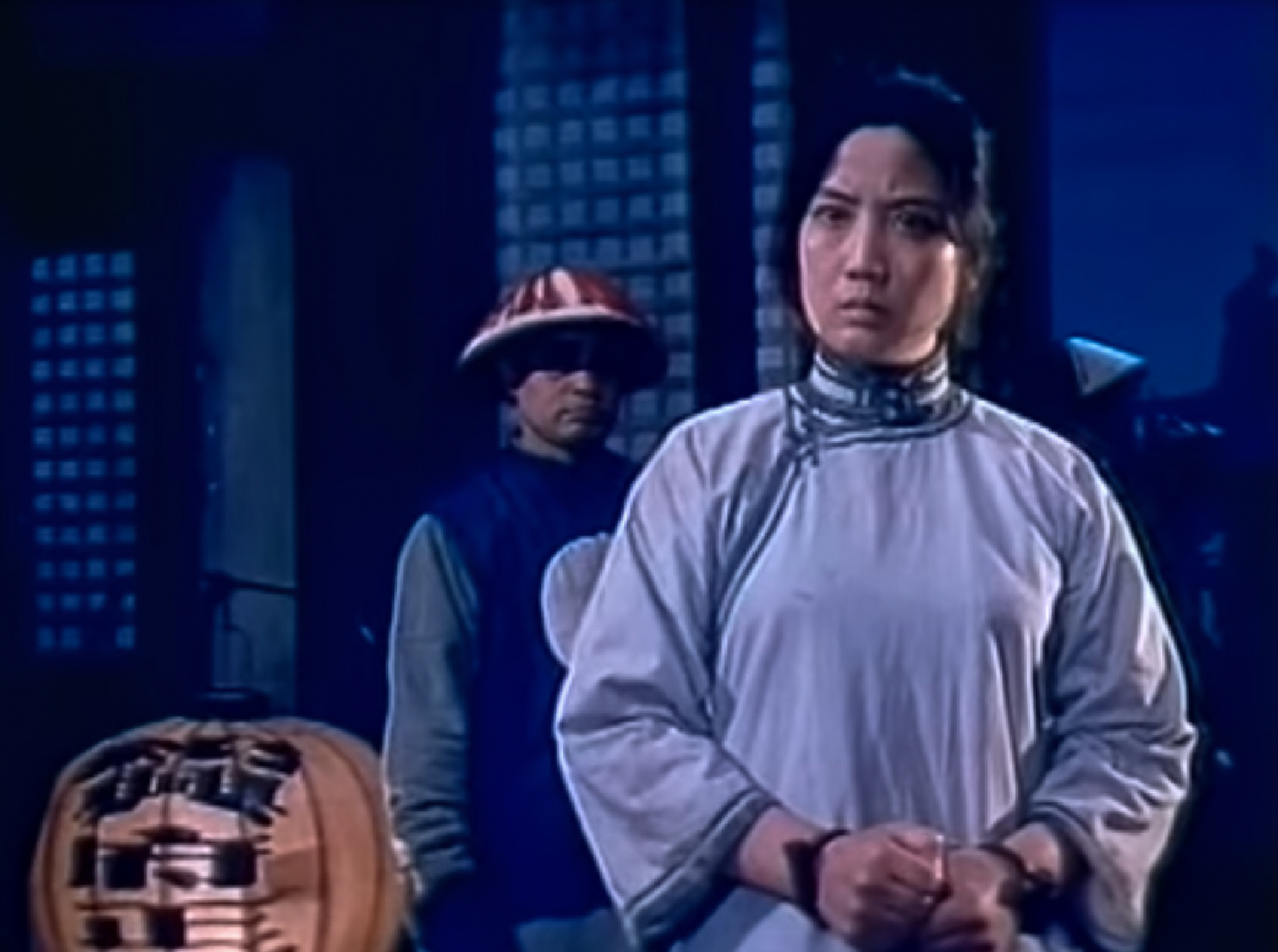 Shanghai Film Studios, Qiu Jin (1983)
Shanghai Film Studios, Qiu Jin (1983)
43. She Came Up With A Brilliant Plan
In a genius move, Qiu had asked for her friends to bury her near West Lake in Hangzhou. Why? Because according to Chinese tradition, it’s the final resting place of many a national hero and heroine. That’s right, Qiu ensured that she would go down in history as her country’s heroine, no matter what they threw at her.
The government, rightly, began to get nervous—and their retaliation was swift and brutal.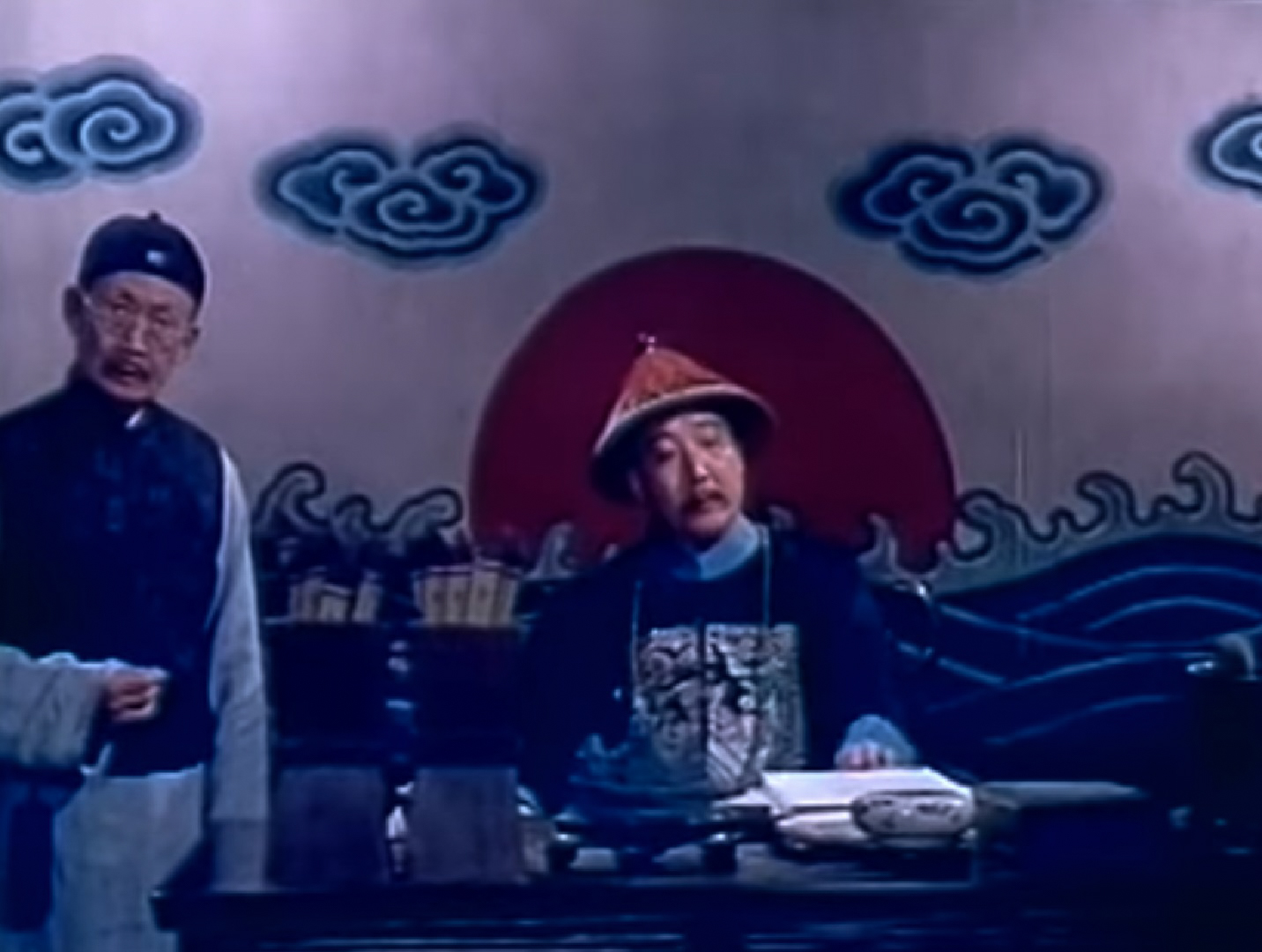 Shanghai Film Studios, Qiu Jin (1983)
Shanghai Film Studios, Qiu Jin (1983)
44. Her Enemies Tried To Destroy Her Again
Nobody in the government wanted Qiu Jin to become a hero of her time. Their vengeance was cruel. As soon as they heard of her tomb at West Lake, they ordered their minions to raze it to the ground. Thankfully, Qiu Jin’s brother hadn’t abandoned her, and he saved her body just in time. Yet Qiu Jin had two more secrets to reveal.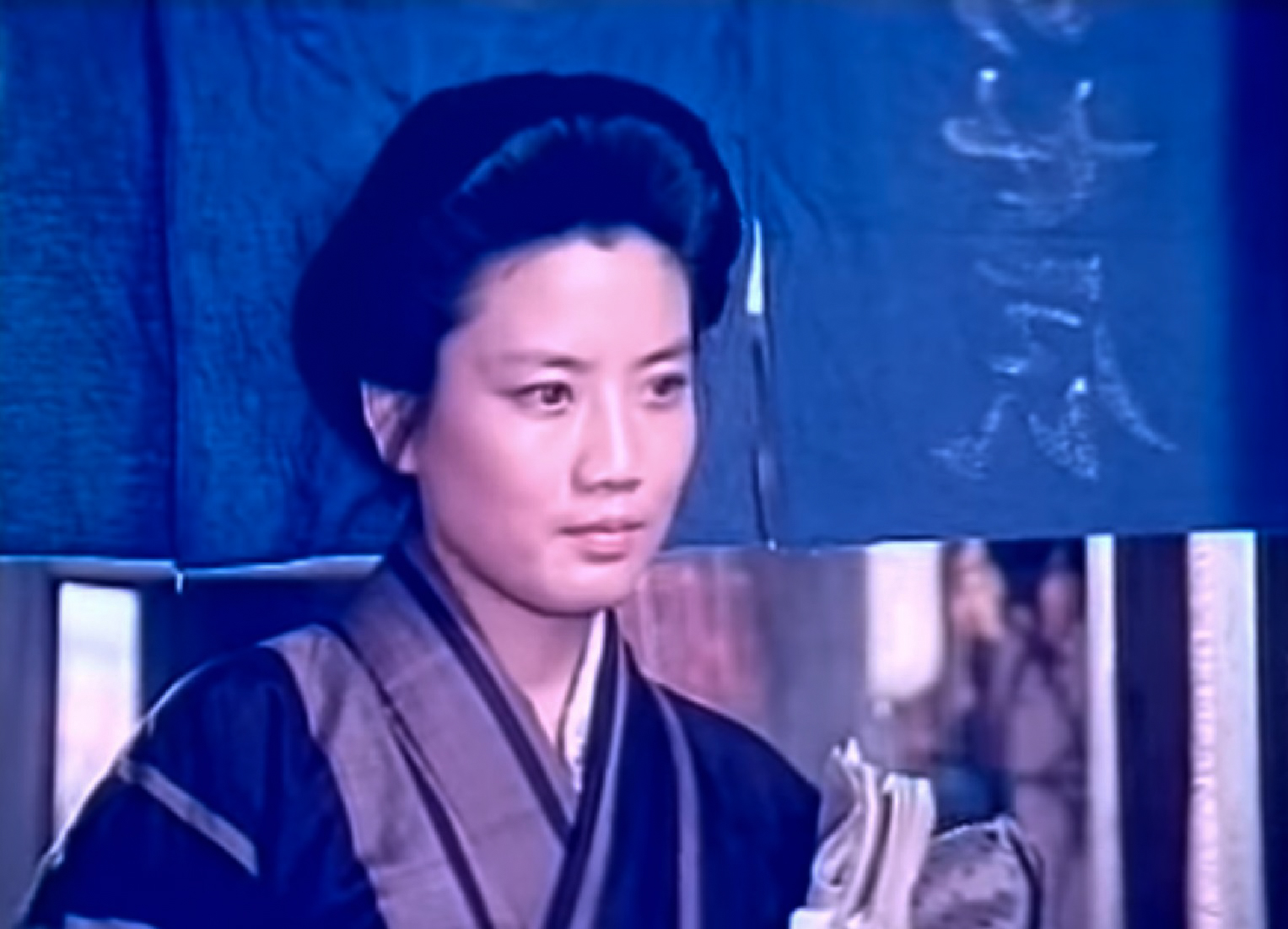 Shanghai Film Studios, Qiu Jin (1983)
Shanghai Film Studios, Qiu Jin (1983)
45. She Wrote One Last Poem
Although Qiu said she gave up writing poetry for revolution, this wasn’t strictly true. In preparation for her end, she also wrote a “death poem”. Its words are utterly heartbreaking. Playing off her name, which means, “Autumn,” Qiu Jin lamented the revolution, writing, “Autumn wind, autumn rain—they make one die of sorrow”.
This wasn’t the only tragic confession Qiu Jin made in her final days.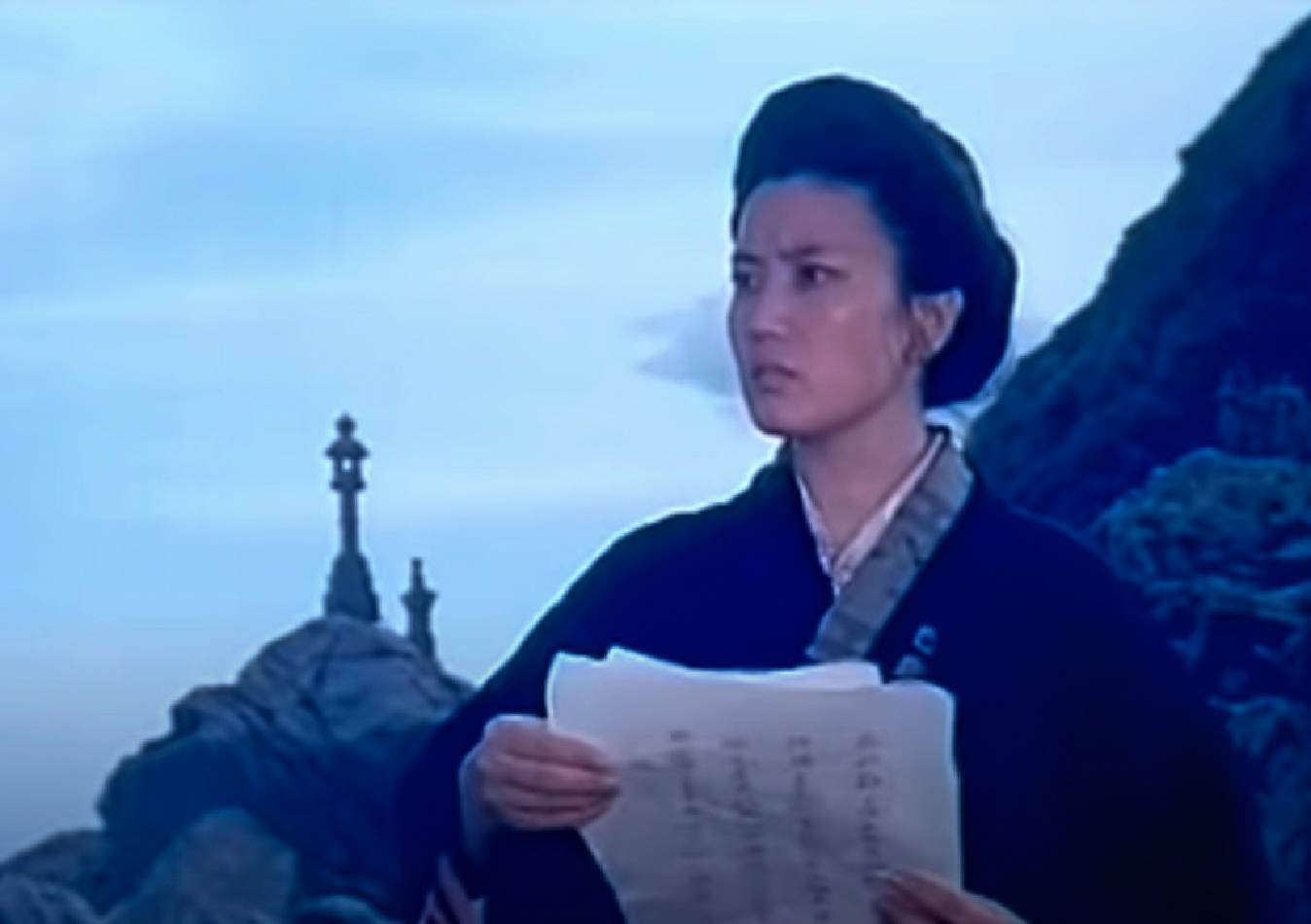 Shanghai Film Studios, Qiu Jin (1983)
Shanghai Film Studios, Qiu Jin (1983)
46. She Scrawled A Secret Letter
To this day, scholars are perplexed about why Qiu Jin didn’t save herself after hearing of Xu Xilin’s death. A heartbreaking letter may reveal the truth. Just before her arrest, Qiu wrote to one of her closest friends and confessed that she was ready to die for the cause, indicating this was always her intent.
Even so, some historians have other, more disturbing explanations.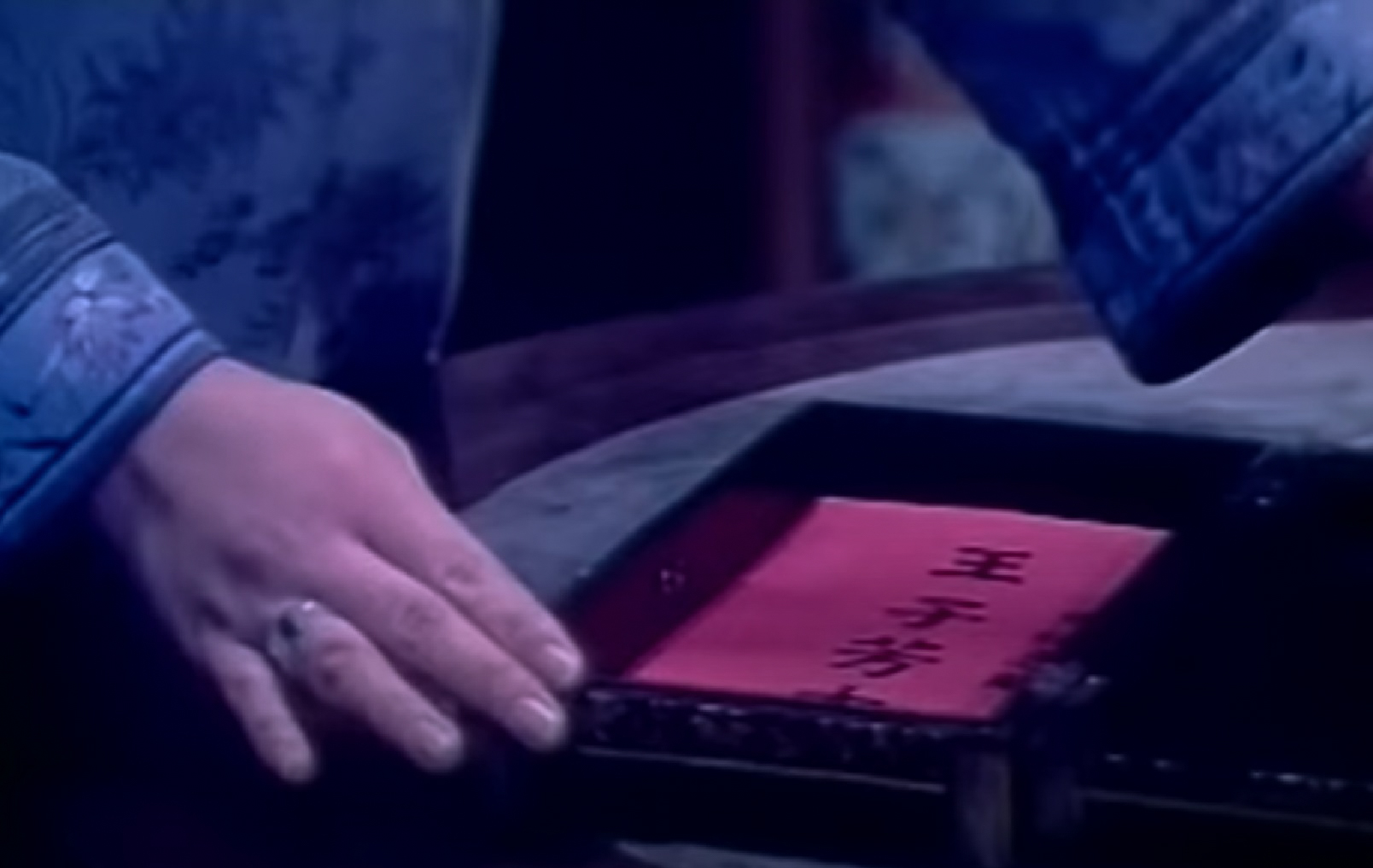 Shanghai Film Studios, Qiu Jin (1983)
Shanghai Film Studios, Qiu Jin (1983)
47. She Got A Tragic Criticism
According to some—including 20th-century literary titan Lu Xun—Qiu Jin’s reasons for martyring herself were far from noble. Lu believed her “reckless behavior” in her final days was because of the “enormous adulation” people gave her throughout her time as a rebel. Her ego got too big for her common sense and, according to Lu, Qiu Jin was “clapped to death”.
Yet whatever the truth, the results were undeniable.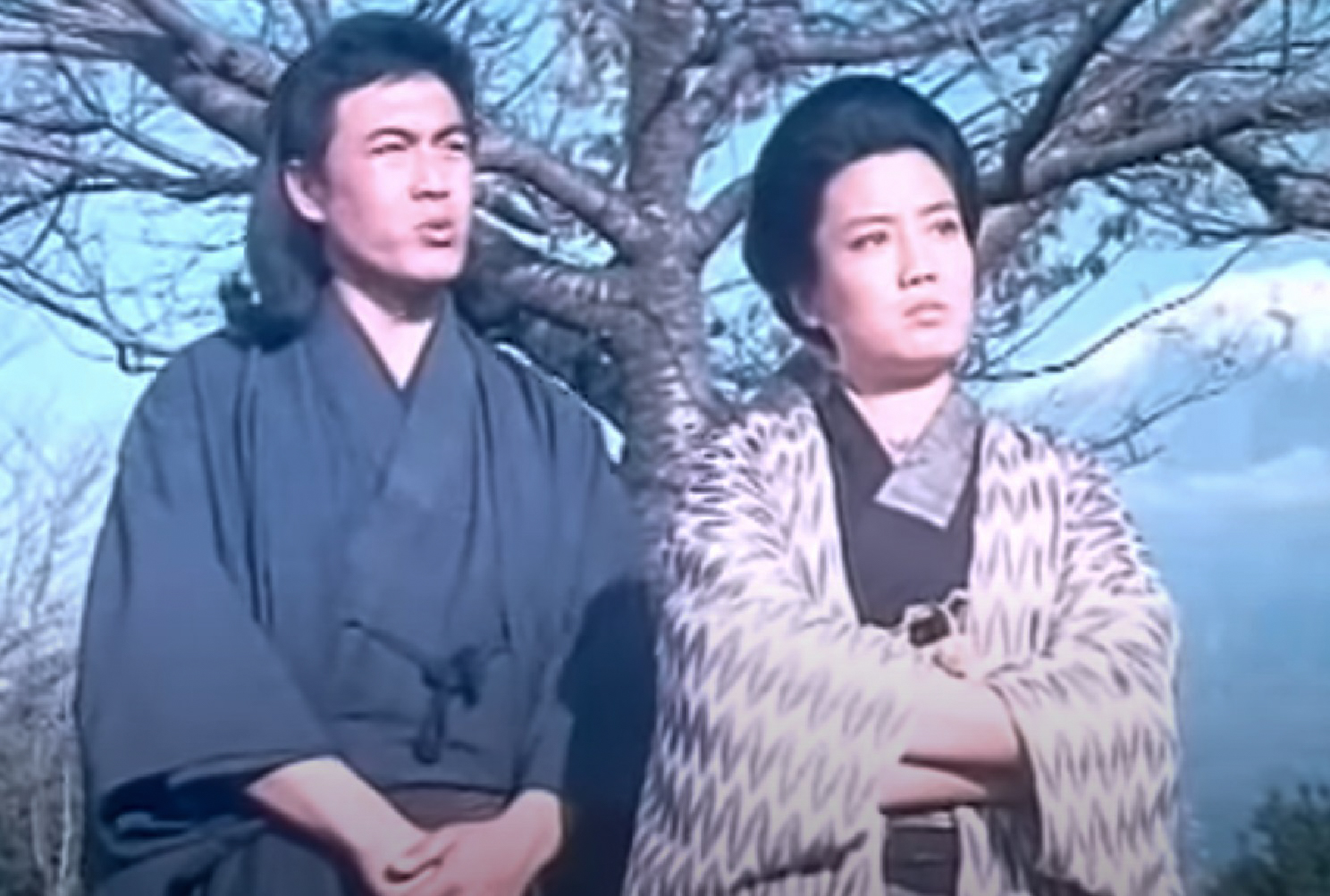 Shanghai Film Studios, Qiu Jin (1983)
Shanghai Film Studios, Qiu Jin (1983)
48. She Didn’t Perish For Nothing
Although Qiu Jin didn’t live to see the full results of her revolutionary efforts, there were results. Her work, along with the work of people like her cousin Xu Xilin, culminated in the 1911 Revolution in China, which did indeed overthrow the Qing Dynasty after long years of struggle. To go along with this, Qiu Jin’s reputation has also grown.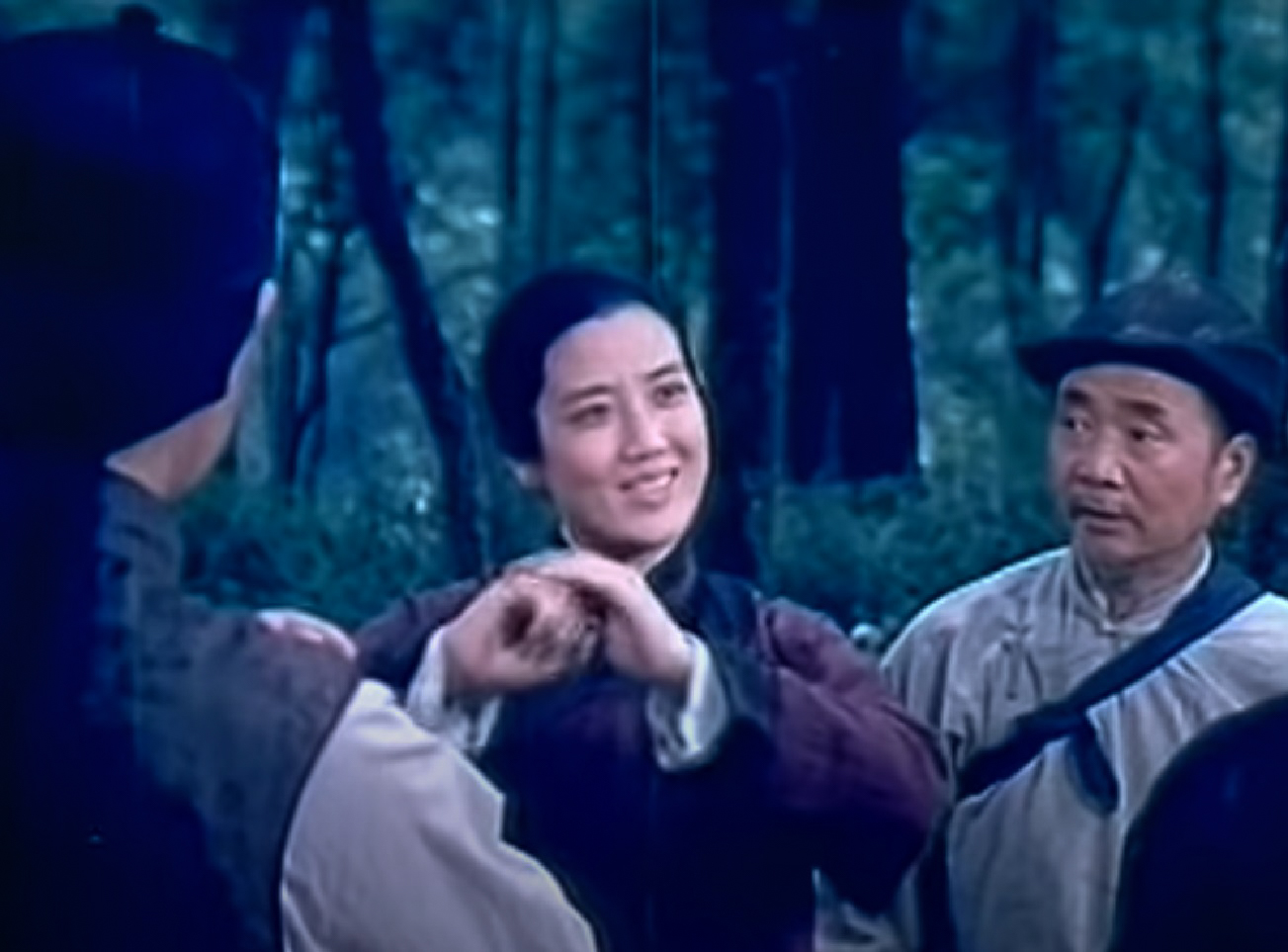 Shanghai Film Studios, Qiu Jin (1983)
Shanghai Film Studios, Qiu Jin (1983)
49. She’s A Hero Today
Qiu Jin became a national hero almost immediately after her death, but she’s still revered in China as we live and breathe. Her body went back to West Lake, and it continues to be a popular tourist spot for those wishing to pay respects to China’s defiant Joan of Arc.
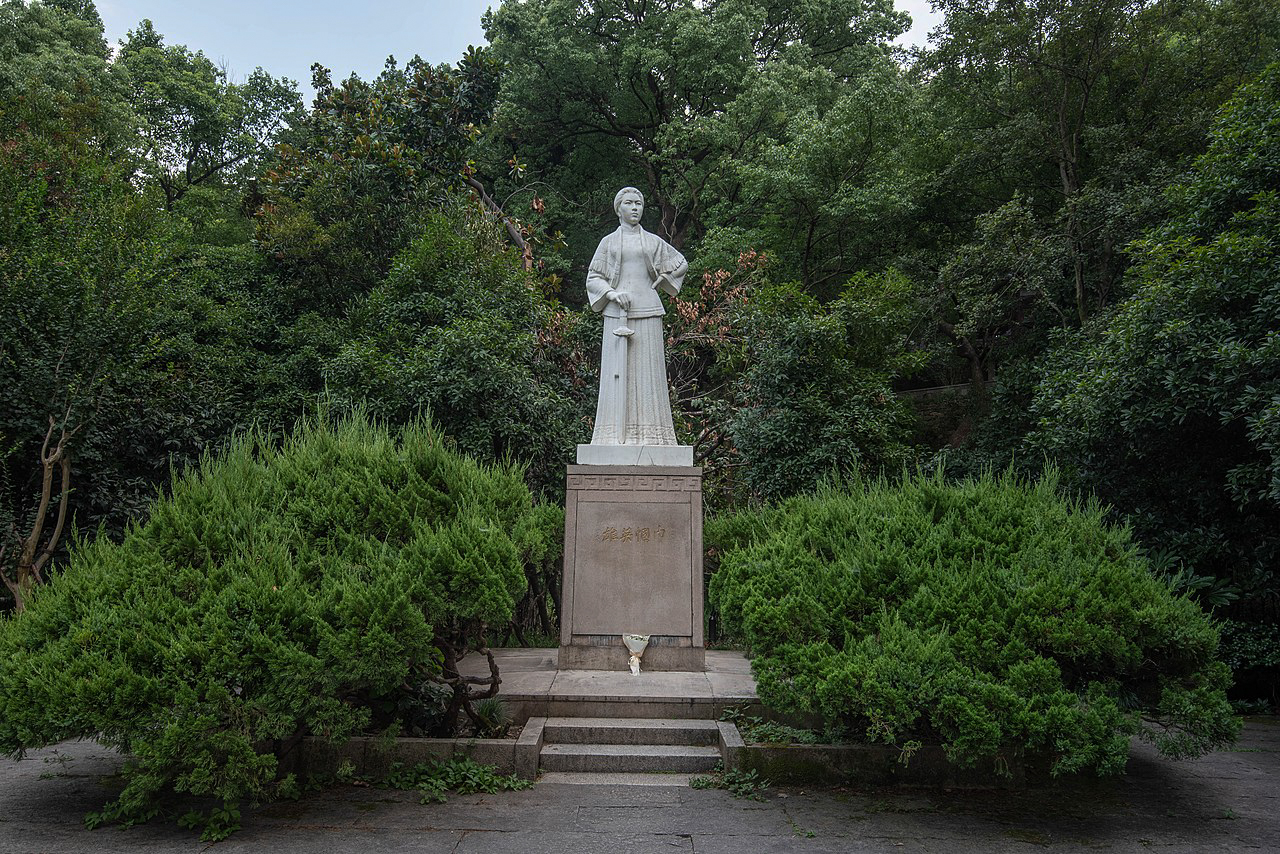 Siyuwj, CC BY-SA 4.0, Wikimedia Commons
Siyuwj, CC BY-SA 4.0, Wikimedia Commons
50. Her Legacy Is Complicated
So, was Qiu Jin a fierce, successful warrior against tyranny, or a too-idealistic rebel who cut her good work too short? Did she flame out too fast, or was she just bright enough? These aren’t easy questions to answer, but one thing is certain: She’s an unforgettable historical figure who sacrificed so much to live life on her own terms.
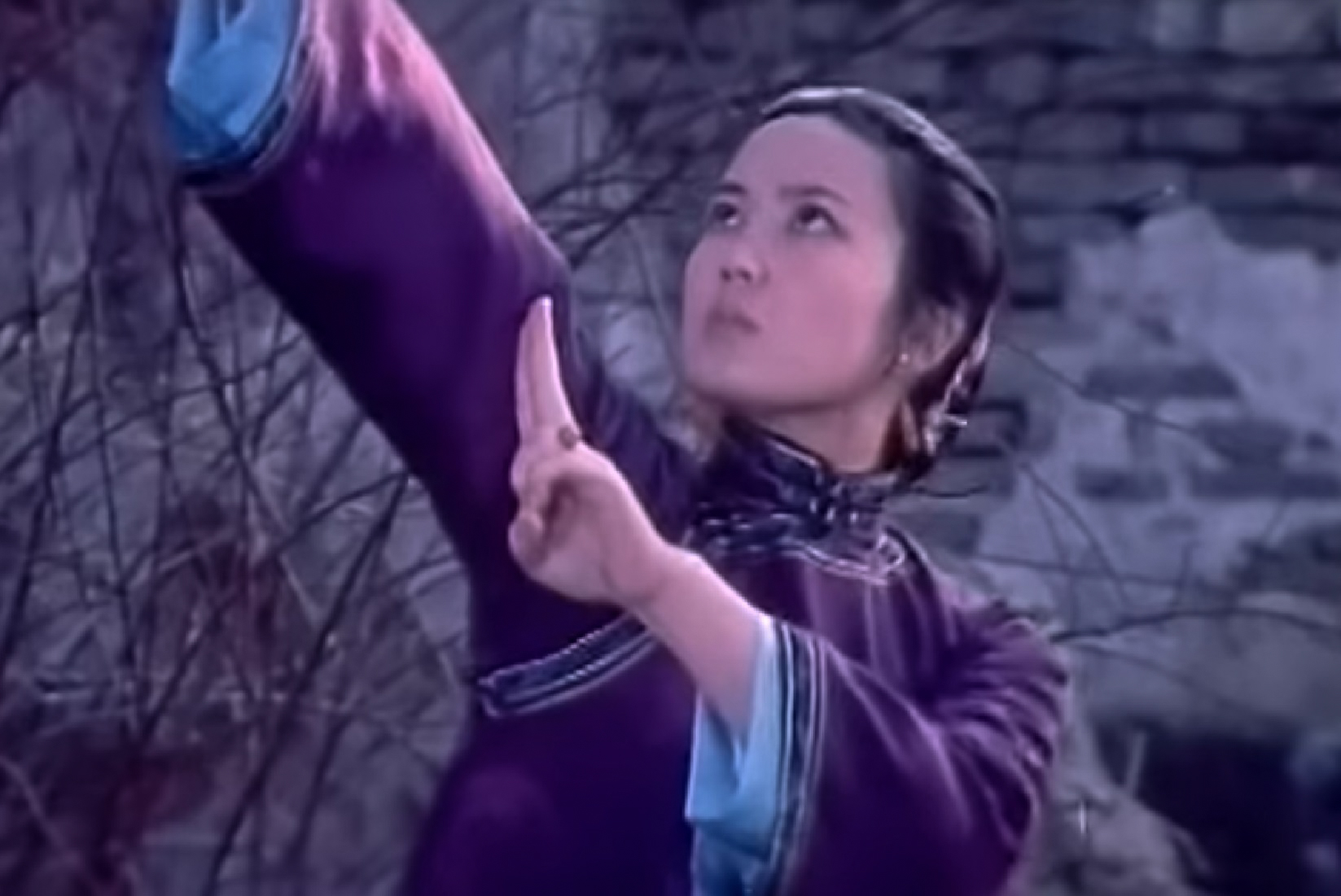 Shanghai Film Studios, Qiu Jin (1983)
Shanghai Film Studios, Qiu Jin (1983)

